Sommelier Liquidity AMA With Tascha Pan From Alpha Finance
In this Episode, Alpha Finance Founder, Tascha Pan, and Zaki Manion, Cofounder Sommelier, talk about Alpha and the Ecosystem of DeFi applications they are building.
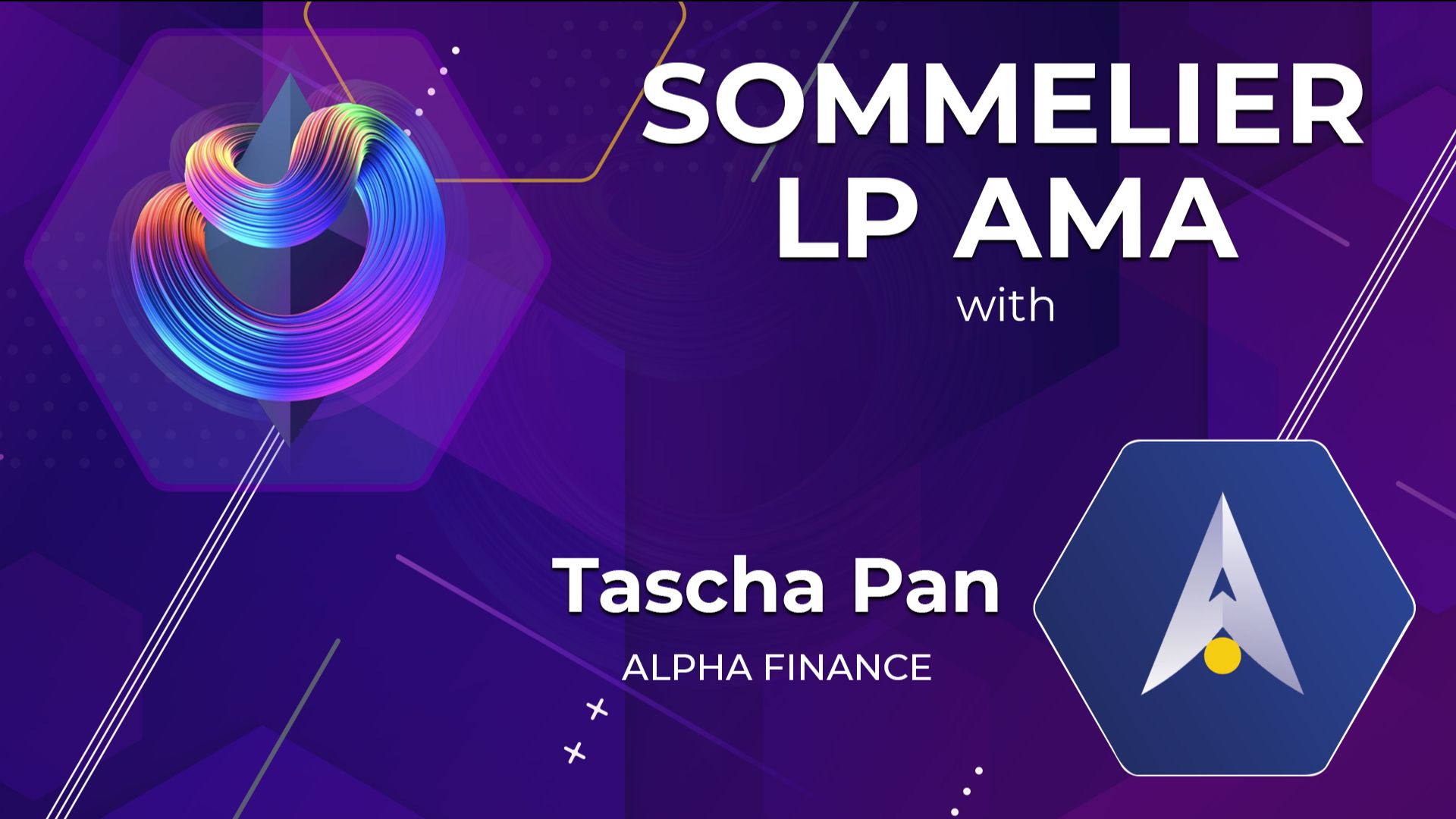
Alpha Finance Lab cofounder and project lead talks about managing DeFi products, strategy, and the industry boundaries where innovation takes place
Still not attending live global events while Covid-19 and it’s variants are around? You’re in good company here. Meet Tascha Pan, Founder, Alpha Finance Lab, maker of well-regarded DeFi finance protocols. Sommelier Cofounder, Zaki Manian, recently spoke with Tascha about her rich history of experience in the blockchain space. He says: “The Alpha name came up during DeFi Summer. How did you get here to the world of magic internet money and DeFi?”
Tascha feels like each person’s story of entering the DeFi space is unique and speaks a lot to how diverse the space is just bringing in people from all over the place.
“For my case particularly, I’ve been studying blockchain and also investing, trading cryptocurrencies since 2017. Then, from there I started my career in traditional finance because I was more interested in the intersection of tech and finance. So, I started working in US banking, servicing clients who are tech companies in San Francisco, and then I did something similar in London. So, I was living in the realm of tech and finance for a number of years and then pivoting more into the tech role as a product manager at Tencent around two years ago. And then from there I was at the point at which I feel like there’s actually a lot more that I can draw with you in the intersection.”
Making the transition to blockchain
That’s pretty much when Tascha says she started to think more of transitioning to the blockchain space.
“The trigger point was actually I applied to an MBA program and Covid hit so Harvard pretty much told me that I could defer if I didn’t want to go for my MBA during the pandemic. That’s the point at which I thought: ‘It feels like this is a very good moment for me to really dive into the space that I’m super passionate about and then concentrate, really take a leap and start full-time there because I pretty much have a backup plan to go get an MBA, right?”
“So, if this really is the bear market we’ll see you at Cambridge,” Zaki says.
Tascha continues:
“So, I started full time at Band Protocol, which is the data oracle based here in Thailand as well. And, then, I was the head of strategy helping to drive more adoption from DeFi protocols. So, from that role itself I pretty much know how to be an expert in DeFi. From diving really deep into a number of different angles of DeFi I see that there are so many ways that the whole space can innovate and improve a lot more.
“I took another leap again to start Alpha Finance Lab with my cofounder Nipun. With the basis that hey DeFi will be here for the long-term. How it’s going to evolve depends on regulations and so many things. What DeFi needs is more of a DeFi lab where we can build innovative products that pretty much capture the market gaps at every single moment in time. And, pretty much this DeFi lab, which we call Alpha Finance Lab, will be relevant at every stage of DeFi through the products that we are able to drive significant product market fit at all stages of DeFi. And, I think that will pretty much bring a lot of benefits not only to our Alpha community, being relevant in DeFi for all stages, but also bring a lot of benefits to DeFi landscape itself -- having a lot of useful products to build off from the money legal and professional find more ways to have a better and stronger financial system.”
Zaki says: “I feel like Alpha has very quickly generated very large TVL. The thing I tell people is that a year in Blockchain is 10 years in real life -- so two years is a long time. Things have been faster since the pandemic started. So, while everyone else was doing DeFi Summer, I was doing Stargate and shipping IBC for Cosmos. Watching DeFi summer and being like it’s finally happening. I’ve been at this for 7 years, it’s a long time. Users are finally here. They’ve been using all these ideas that we’ve been talking about. It’s been pretty exciting.
“I’ve had some interactions with the Bangkok crypto scene -- There have frequently been little touch points with Cosmos. I think someone tried to build a national ID system for Taiwan on top of the Cosmos SDK three years ago. I have no idea what happened with that, but I don’t think everyone in Thailand has IDs based on the Cosmos SDK but…”
Tascha laughs: “I don’t think so at the moment.”
Zaki adds: “You aren’t a human IBC packet, right?”
Tascha replies, “Maybe I am.”
Finding a balance
Maybe one of the hardest things about DeFi in general is just navigating the idea space. Zaki says: “There are so many financial primitives that still need to be built. There are so many different blockchains to build them on. There are so many ideas. I just think the abundance of opportunities is kind of overwhelming. Do you feel that way, too?”
Tascha replies: “Yes and no. I think overwhelming in a sense that -- so many things are happening all the time so you have to keep up with the pace of the whole landscape -- things are happening on Terra, on Cosmos, on Ethereum, BSC, so many things.”
Zaki knows what she means. He adds:
“I remember a time when I think I knew everything that was going on -- 2015, 2016, 2017. I probably personally knew the founders of almost every major project. I’d read the source code of virtually everything that was interesting and then as we got into 2019 I was like I can’t keep up. So, there’s a lot going on, I’m sure I’m forgetting someone’s favorite product. Solana, Optimism, Arbitrium, Starkware -- so many different things to be building. You also have to specialize a little bit. How have you been navigating this?”
Even though the space grows so fast and so much, still it comes down to what matters the most to a given project at a given time. Tasha continues:
“That’s how we think of it as allocating 20 percent of the resources to achieve something that generates 80 percent -- so the 20/80 rule I think that still holds and that’s the mindset that we do, which once we have that mindset then that pretty much determines what’s going to be the priority. And, then we stick with it and drive it to execution. Of course, we will stay alert on all the things happening around us and then always see if our assumption thesis is correct, meaning if the current thing that we’re doing will actually generate 80 percent of the value. A lot of times it does but definitely there are certain times that things in the space also shape or change our decision, which requires us to pivot quickly as well.
“So, I think it’s more of balancing the two forces -- one, really have the internal conviction of what you’re doing will generate 80 percent of the output by only allocating 20 percent of the resources. But, at the same time you also have to be alert on making sure that with the changing landscape that still holds true. So, I think it’s more balancing the two to make sure that we achieve a number of things in a short amount of time.”
Alpha Finance Lab protocols and products
Tascha discusses the different protocols and products that Alpha Finance Lab has deployed to date:
“There are pretty much three things: The first one is Alpha Homora, that’s the first protocol that we did. The second one is Alpha Launchpad, which is a DeFi incubator program -- it’s not a protocol per se it’s a program. The first incubator project has been announced and they’re launching pretty soon as well. They’re called Beta Finance and are building a protocol to offset volatility. All these incubated projects will also give some part of the tokens to Alpha stakers so that’s where the value curve brings. Even though this is not a protocol that we built, it still generates value as if it’s a protocol that we built so it’s more like a scaling way to grow our Alpha Finance Lab without having to build every product. So, that’s the second thing.
“And, the third thing is Alpha X, which is what we are actively building right now. It’s a new product that we haven’t shared much information about yet. We just shared briefly that it’s more of a derivatives perpetual swap product. But the original concept that we shared in detail before has shifted quite a lot, taking into account a lot of things that we’ve learned from the space and changes in the derivatives space, and the perpetual swap space has shifted quite a lot so we’re redesigning the new Alpha X. It’s very different from the old one.”
How the DeFi space has shifted
Zaki would love to hear Tascha’s take on how the space has shifted. He says: “One thing that comes to my mind is the perpetual protocol seems to be out there and getting some traction. Perpetuals are the great financial innovation, I think, or product market fit from the pre-DeFi era with Bitmex and the way perpetuals bootstrapped FTX to the stratosphere. How is the perpetuals market changing from your point of view?”
Tascha thinks of it from two sides of user groups: one is the experienced traders; the other is general DeFi users..
“Let’s say experienced traders who are already familiar with pressure swap on centralized exchanges or the ones who are familiar with leveraged tokens. However, there’s a whole large group who are general DeFi users. These are the people who are lending on different protocols using DeFi already but haven’t been in the category of experienced trader. They may not know of pressure swaps or leveraged tokens but I would say this is a pretty large part of DeFi at the moment and also especially for derivatives and professionals of space, right, but there’s actually no protocol that’s looking to tap into this group yet and this group will continue to grow as DeFi as well.
“I would say this group would grow a lot faster than the experienced trader would grow as well because a lot of times an experienced trader may also decide to stay on the centralized exchange. So, I think how the space has shifted a bit more is now there are a number of protocols focusing on the segment of experienced traders and we have seen how adoption has been. But, I think what is missing is pretty much the next step to unlock a lot of usages from the second group, which I think there haven’t been any protocols so far tapping into that area. And I think speaking from the usages from the protocols that we have at the moment, it’s definitely a lot of usages but I think it’s still a big leap to where it should be in terms of if you look into the derivative space versus spot trading market on centralized exchanges the gap is so huge the question becomes ‘what will take derivatives on chain to be that huge?’”
Zaki observes:
“It’s like the on-chain derivatives market is still driven by spot and price discovery and the centralized exchange price-- like all price discovery -- has been in perpetuals for a long time. I’m mostly an engineer and a builder, I’m not really a trader, but you find yourself having to trade.Trading is just part of engagement with this space. But, I still very much live in the world of spot. It’s hard as a US person to get access to perpetuals in centralized exchanges, but I’m curious. And, I think as you pointed out this asymmetry is a really glaring thing about the current state of DeFi.”
Tascha adds:
“And, that’s a main driver for the new Alpha X as well. We think there’s something missing in DeFi that will unlock the derivative space to take that huge leap and pretty much mimic the growth of what derivatives see on centralized exchanges. So hence, building off that mindset, we have come up with the new Alpha X which we believe will allow derivative space to take that leap going forward.”
Zaki recalls that Kyle Samani [@KyleSamani] recently had a really good Twitter thread about the challenge. Zaki observes:
“When you go back to Bitmex originally and Arthur Hayes, his whole model was ‘you can trade anything but your collateral’s all Bitcoin.’ Everyone gets in and out of Bitmex through Bitcoin, sort of the beginning of the space. And, we’ve come a long way from that, but collateral management and collateral efficiency is what makes this space tick. Do you agree?”
Tascha says: “I think definitely yes for centralized exchanges, but I think if you’re talking about DeFi I would say the key thing is interoperability. Because I think that will allow the protocol usage to multiply, quadruple with minimal effort. So, I think that’s how we’re looking at it as well.”
Zaki thinks this is a big part of this universe, and what makes all of this so complex. He explains:
“In the centralized exchange world composability is controlled by the centralized exchange. So they can offer cross-margining of products and interactions between different products on exchange, whether it’s just different pairs or lending, collateralizing margin and all of these things. But, in the DeFi space, efficiency is not just going to come from how your protocol internally manages capital, but how all of these things interface with each other.”
“Yeah, yeah, definitely,” Tascha agrees.
Zaki adds: “It’s a very intellectually challenging space, that’s what’s so much fun about it.”
Tascha thinks another fun thing about it is there’s pretty much no set way of doing things. “People are all experimenting, innovating, coming up with new ways to do things leaves the boundary a lot larger, which I think that’s where creativity flows and new innovation comes.”
We basically have a few things that we seem to have started to understand how they work. Zaki says:
“Automated Market Makers, especially in the spot market that seems to be mostly figured out though being a liquidity provider efficiently, like the stuff that Sommelier works on, has a lot more work to be done, especially if being a liquidity provider is going to be democratized. But then like with that we have money markets. And once you get beyond that it’s derivatives, options, it’s still pretty much a wide open field. How those things compose with the existing things, lending protocols, derivative derivative, AMMs all that stuff is totally unknown. There’s so much work to be done.”
Tascha agrees: “Yeah, I think definitely there’s so much work to be done but I think it’s more like we were all in this together so definitely one protocol being built that will also impact how other projects think of the space, I think it’s like we’re all building the lego together so I think that’s another fun part.”
Zaki says:
“Yeah, it’s so different. Traditional finance is all about the secret sauce that nobody else knows about locked down with confidentiality agreements and non-competes and all of these things. And I think what is glorious about DeFi is that everything is open source. That we’re all inventing the system together, we’re all trying to create things together and we’re all trying to create brands and identities and all this stuff. We’re all trying to make money. But, there is this shared public learning that I think is really exciting to be part of.”
More articles

Is Speculation Killing Crypto’s Future?

Sommelier's Path Forward: Embracing Revenue Over Narrative
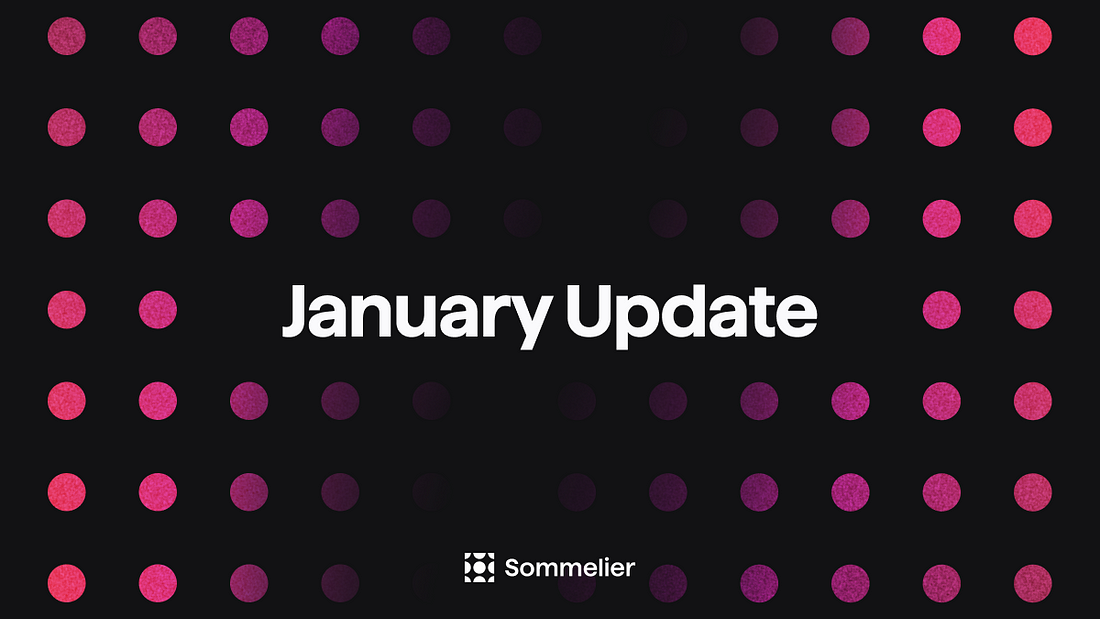
Sommelier January Update
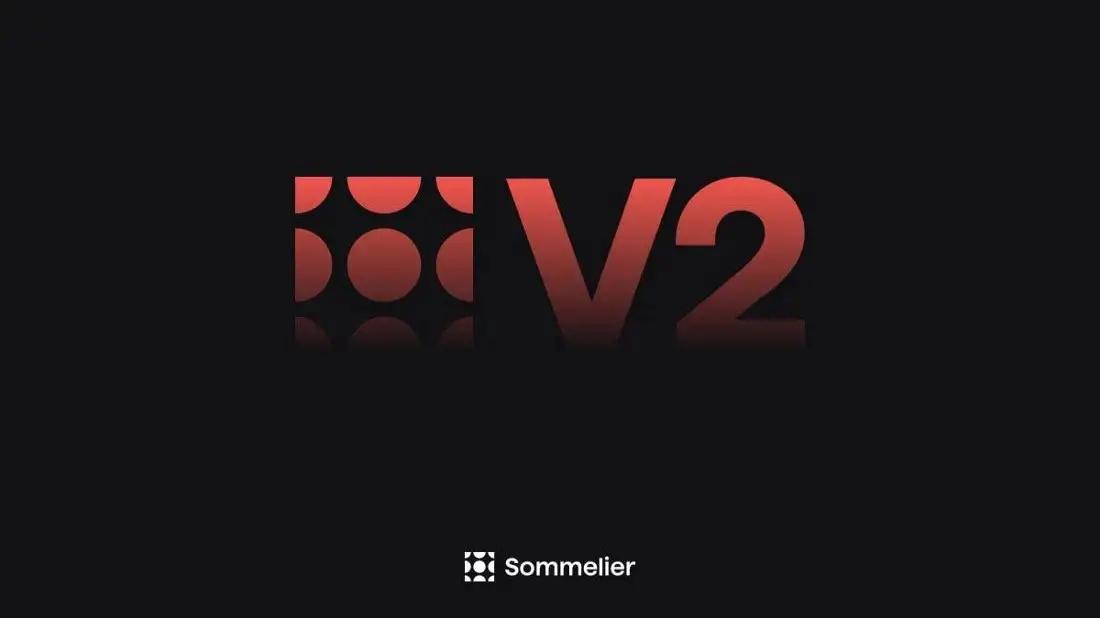
Sommelier Upgrades Cellar Architecture to Enable the Most Powerful DeFi Strategies in the Market
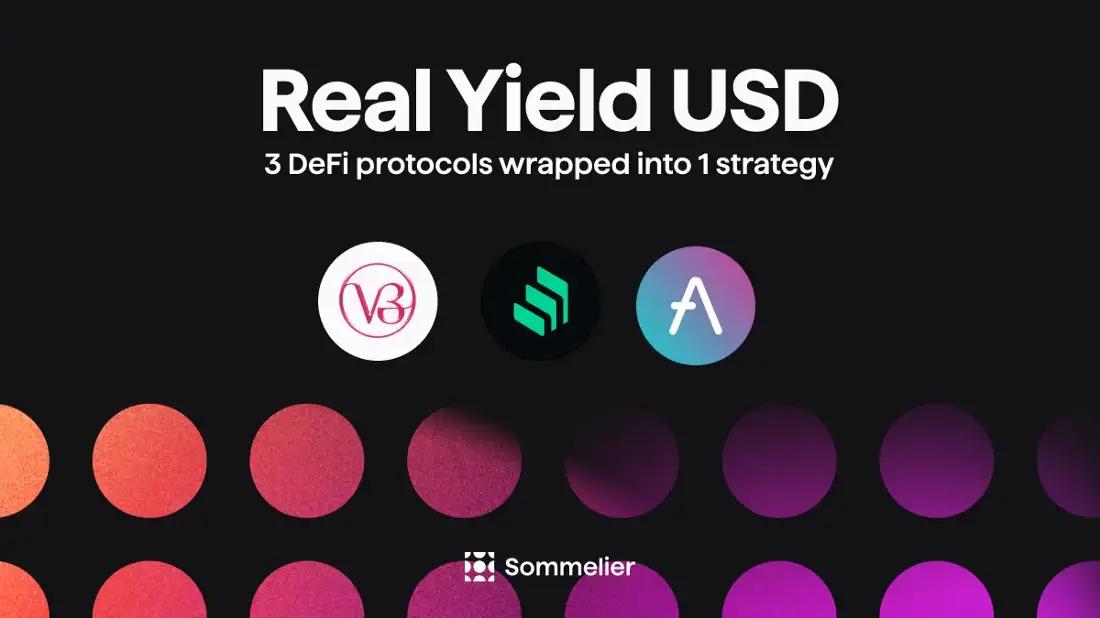
Real Yield USD is Coming to Maximize Stablecoin Yield
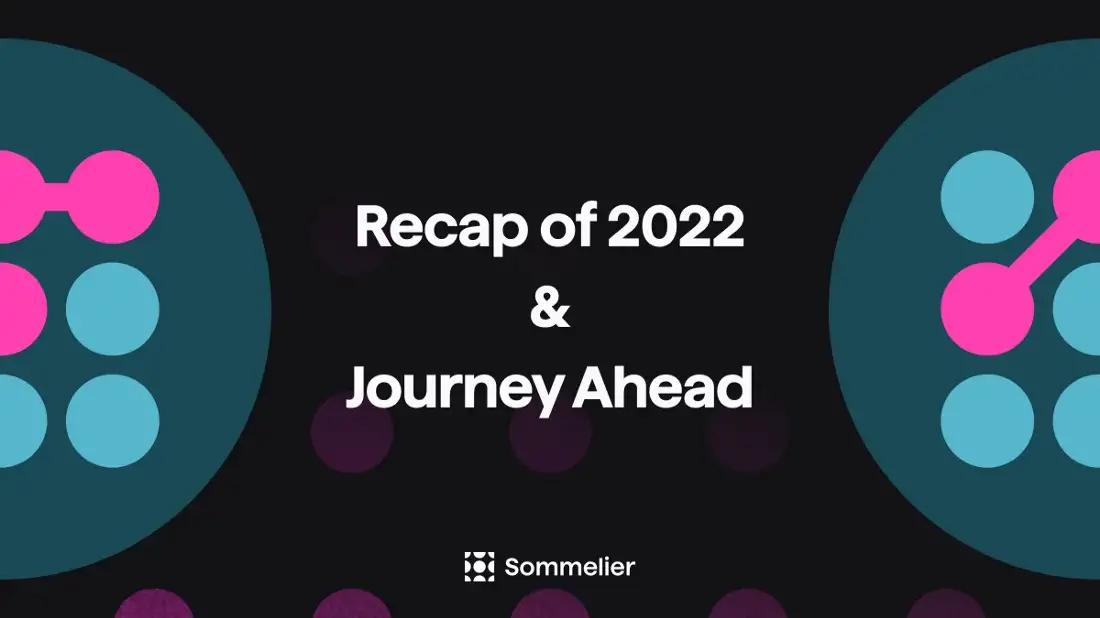
Retrospective on 2022 and the Journey Ahead
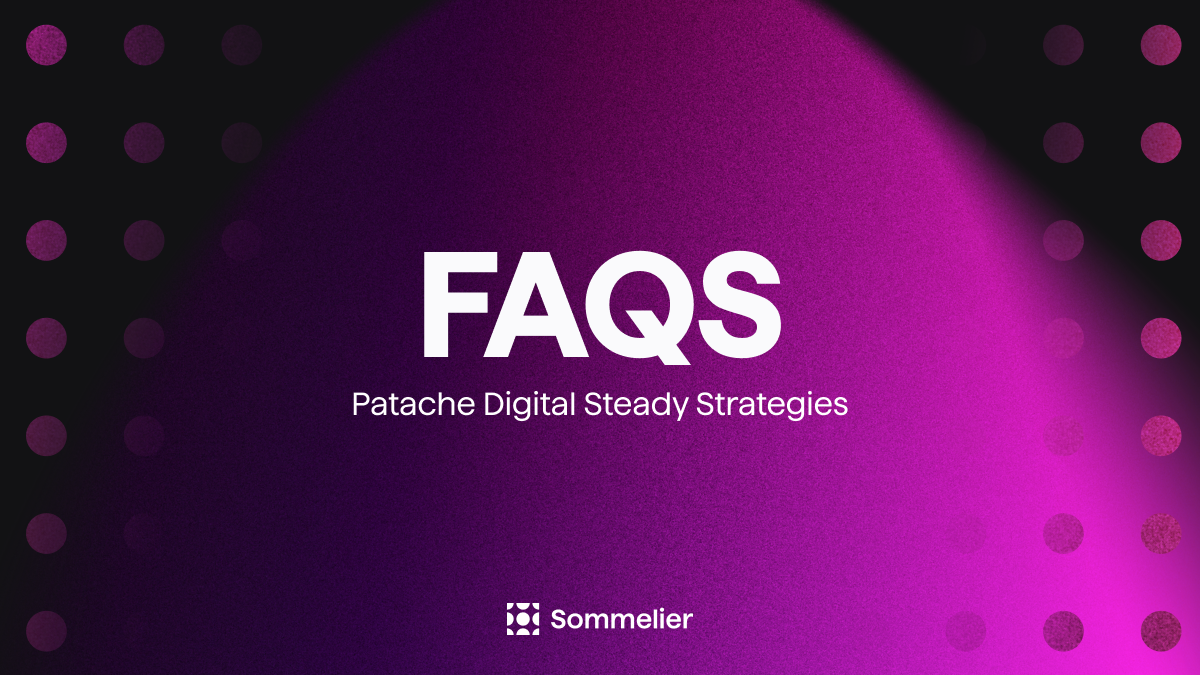
FAQ - Patache Digital’s Steady Strategies
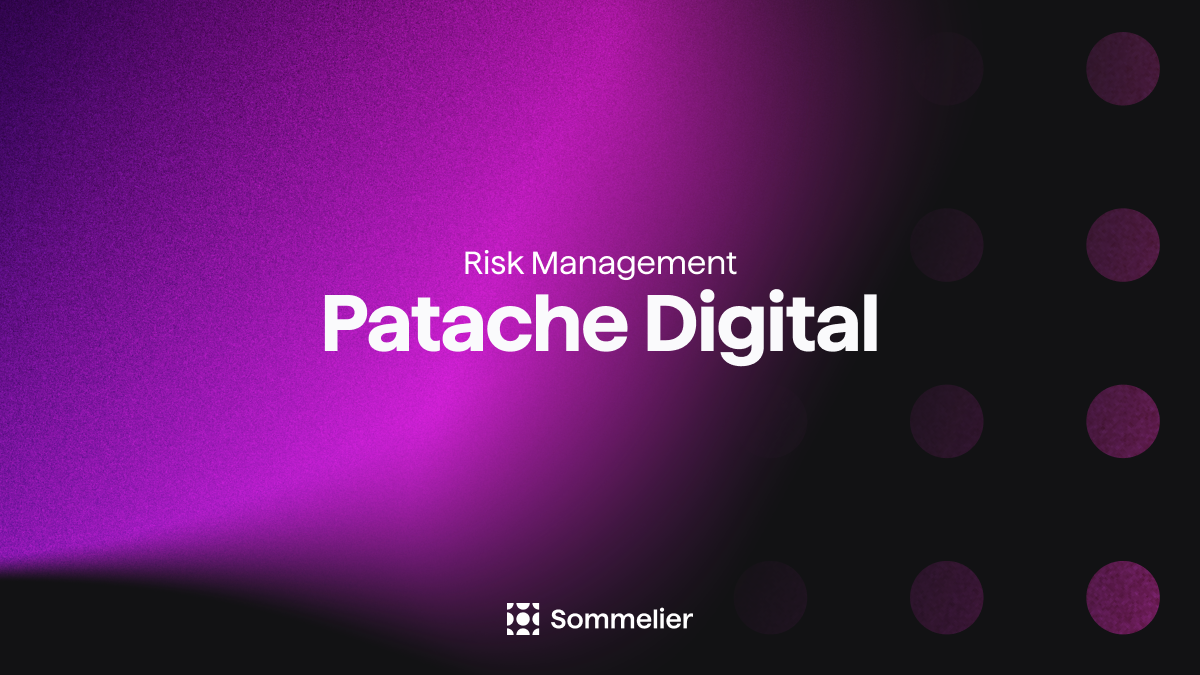
Patache Digital: Risk Management Discussion
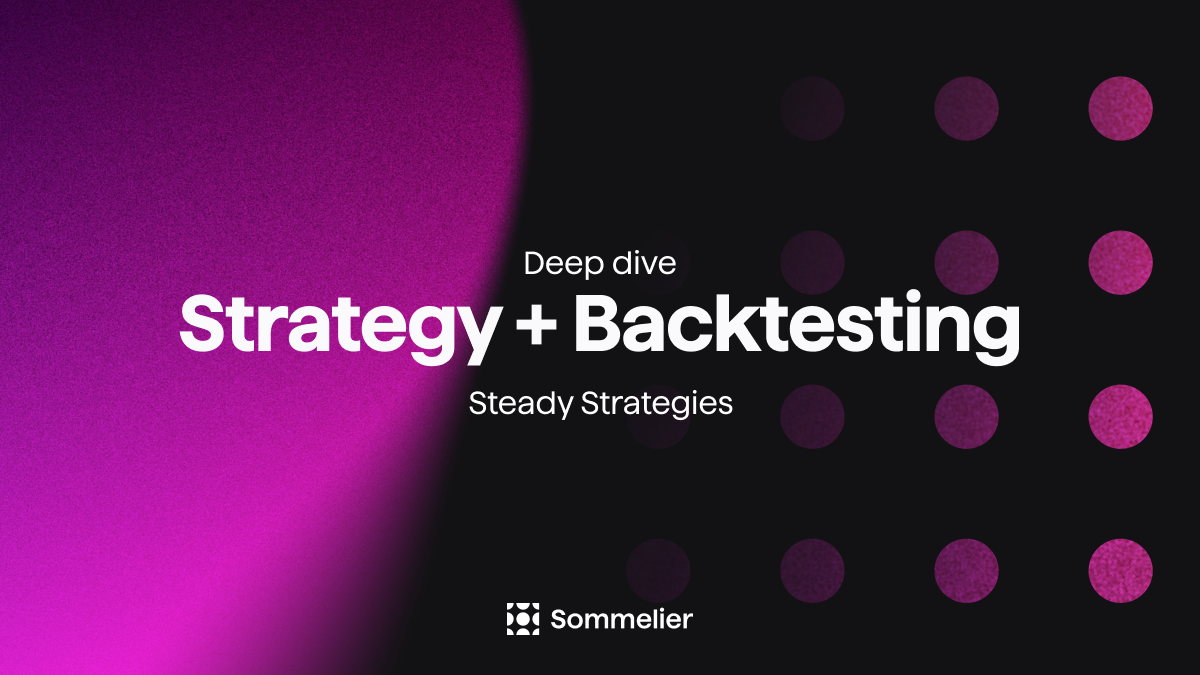
Strategy Deep Dive: Patache Digital
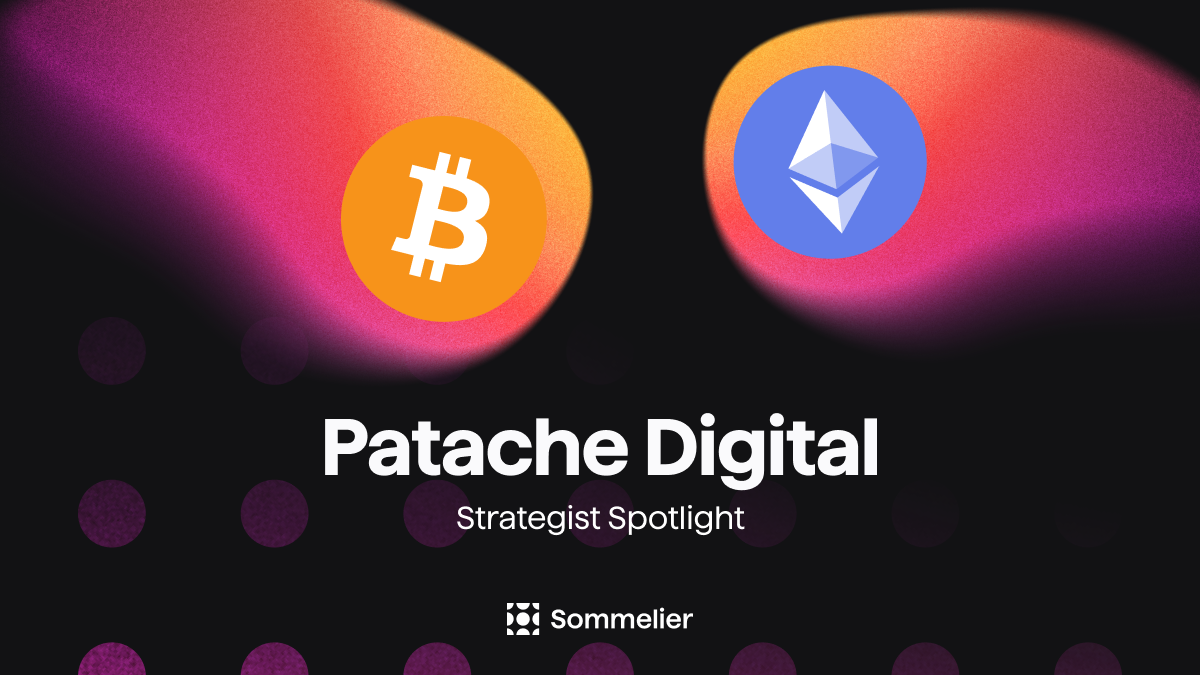
Strategy Provider Spotlight: Patache Digital

User Guide: How to Participate in Strategies on Sommelier

Sommelier Ambassador Program
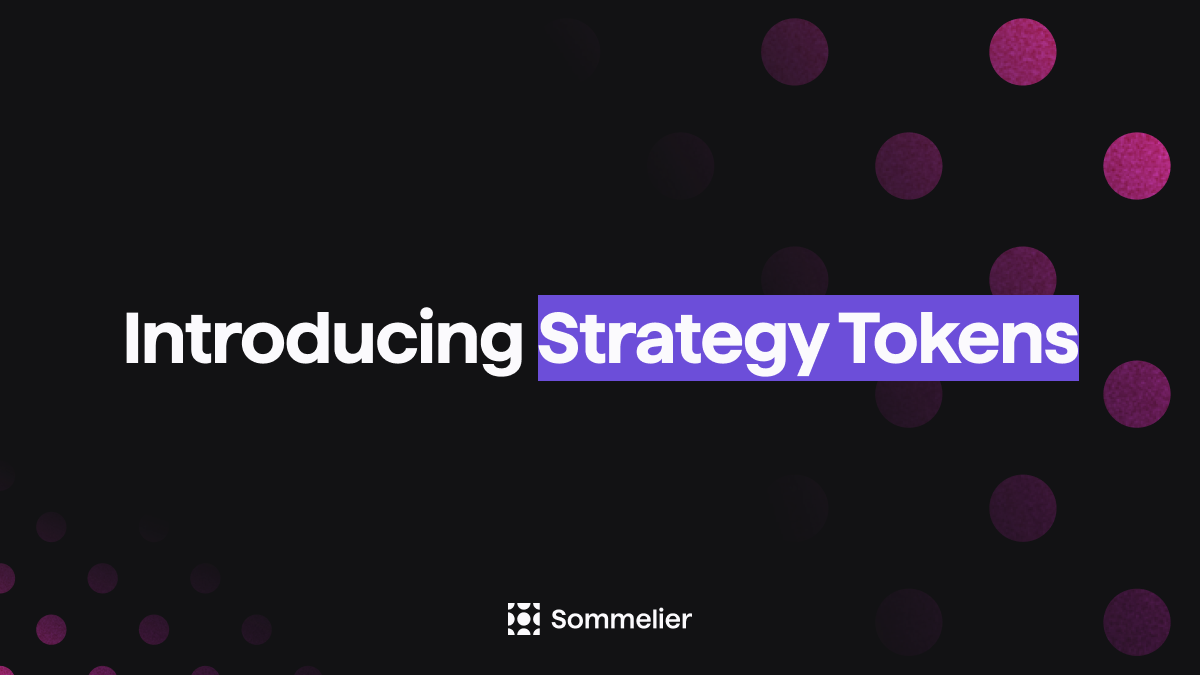
Strategy Tokens: What Are They and How Do They Work?

6 Core Principles of Sommelier
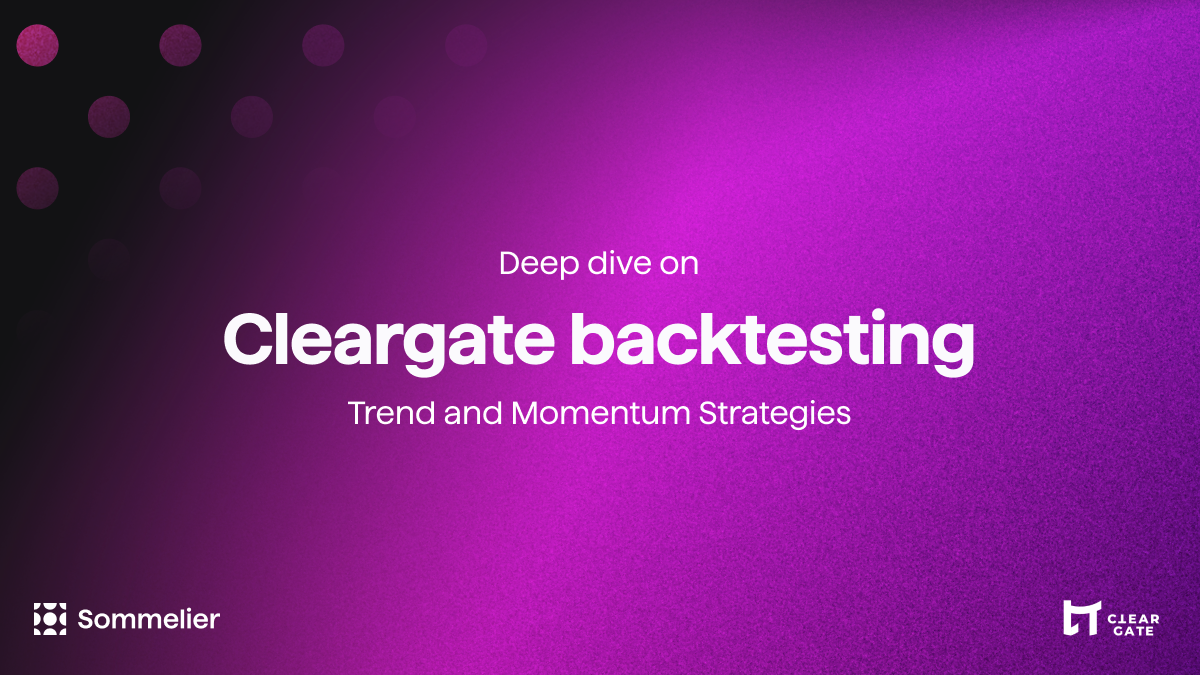
10/10/22 - Deep Dive on Cleargate Backtesting

Strategy Provider Spotlight: Seven Seas

Deep Dive on Trend and Momentum Strategies

Strategy Provider Spotlight: ClearGate

Supporting Strategy Providers on Sommelier

Sommelier Protocol Team Weekly Update #11
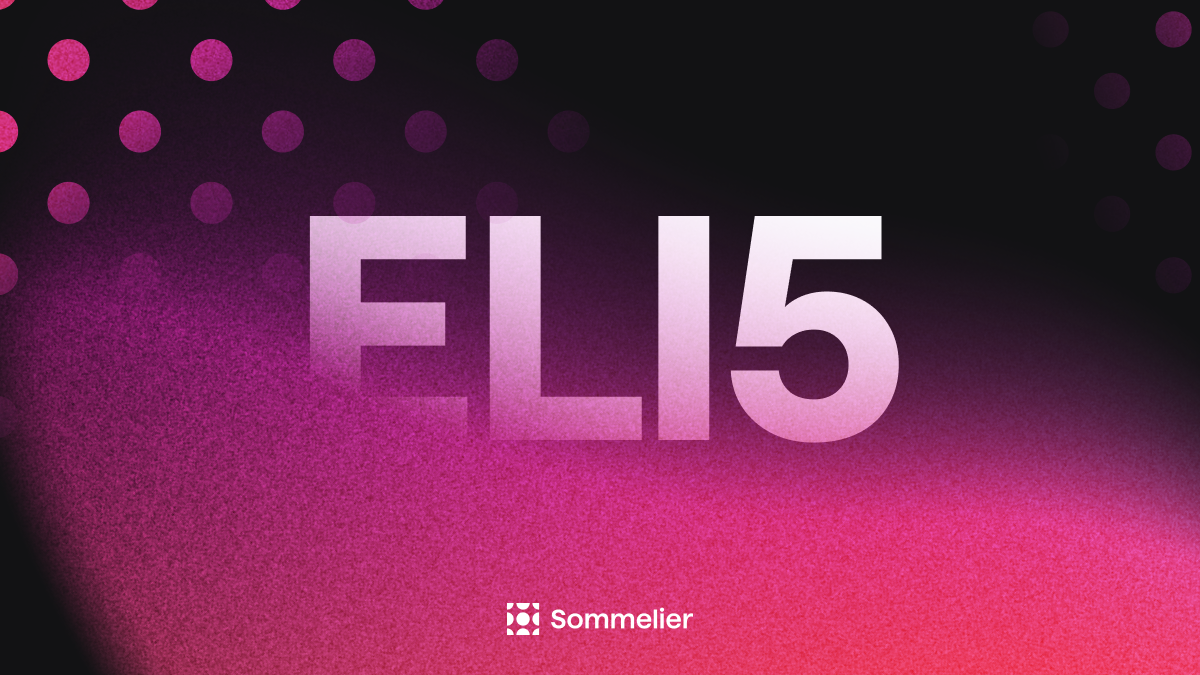
ELI-5 Explanation of the Data Science behind Sommelier’s First Aave Cellar

Sommelier Protocol Team Weekly Update #10
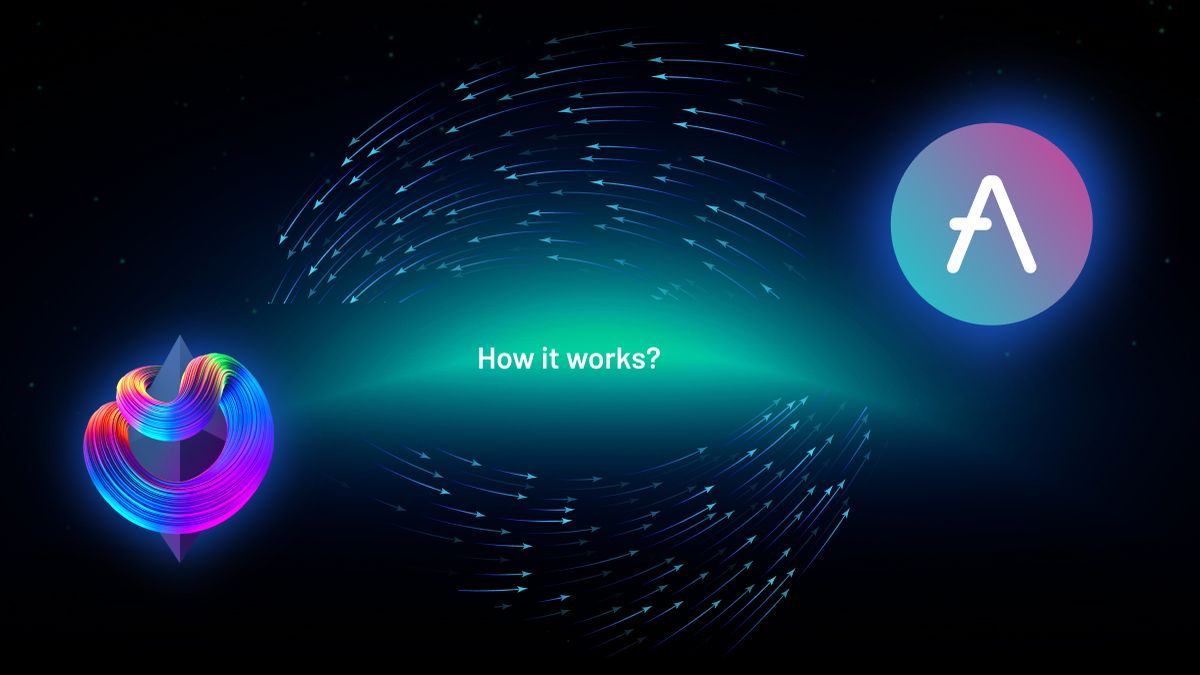
The Data Science Behind Sommelier’s First Aave Cellar
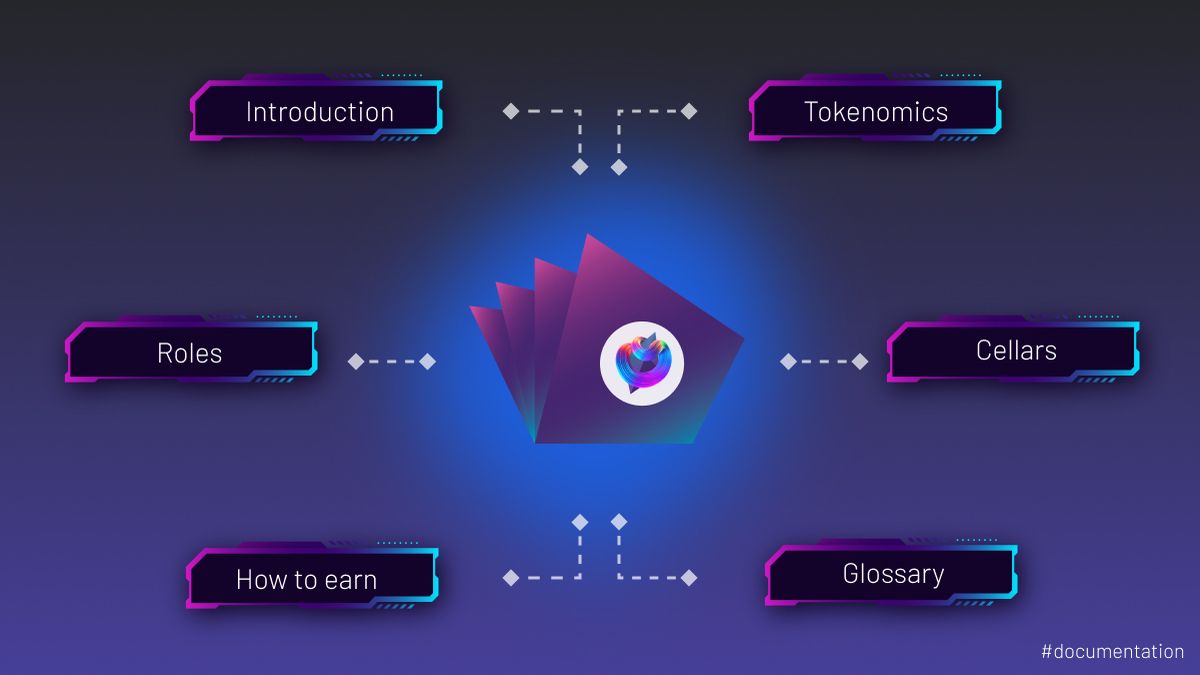
Sommelier Protocol Design Documents
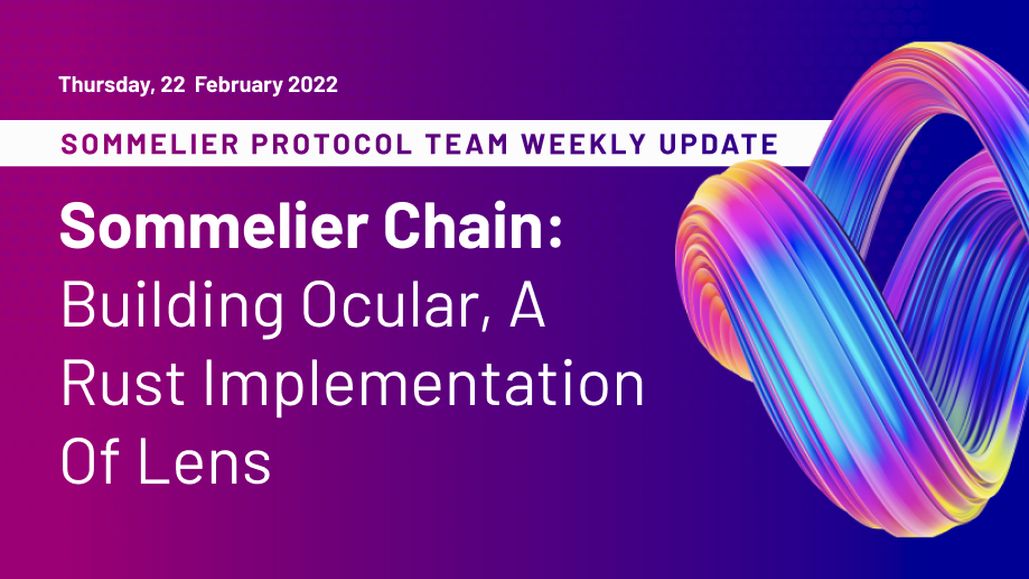
Sommelier Protocol Team Weekly Update #9
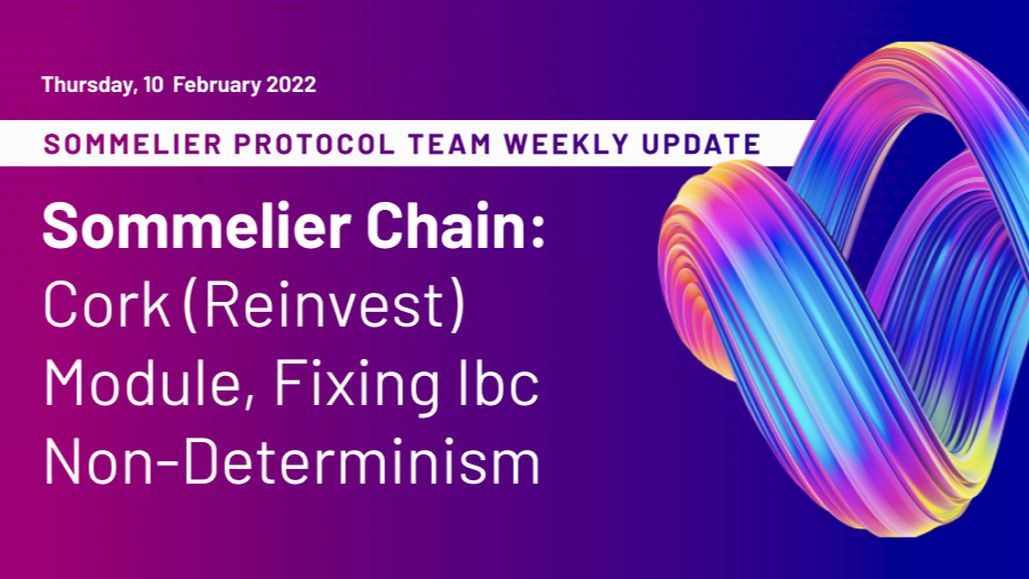
Sommelier Protocol Team Weekly Update #8
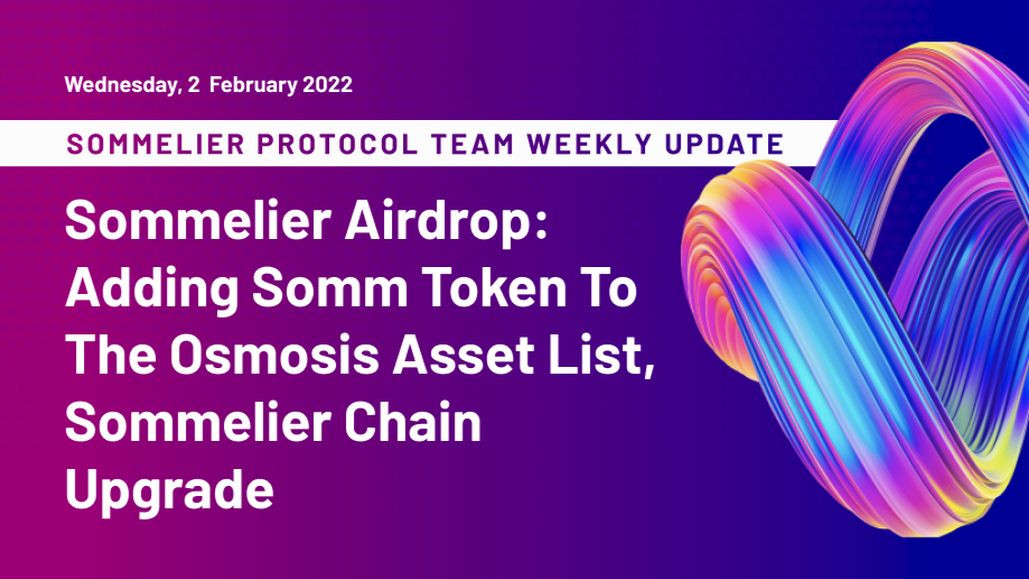
Sommelier Protocol Team Weekly Update #7

Twitter Spaces With Sommelier: How to Launch a Cellar on Sommelier
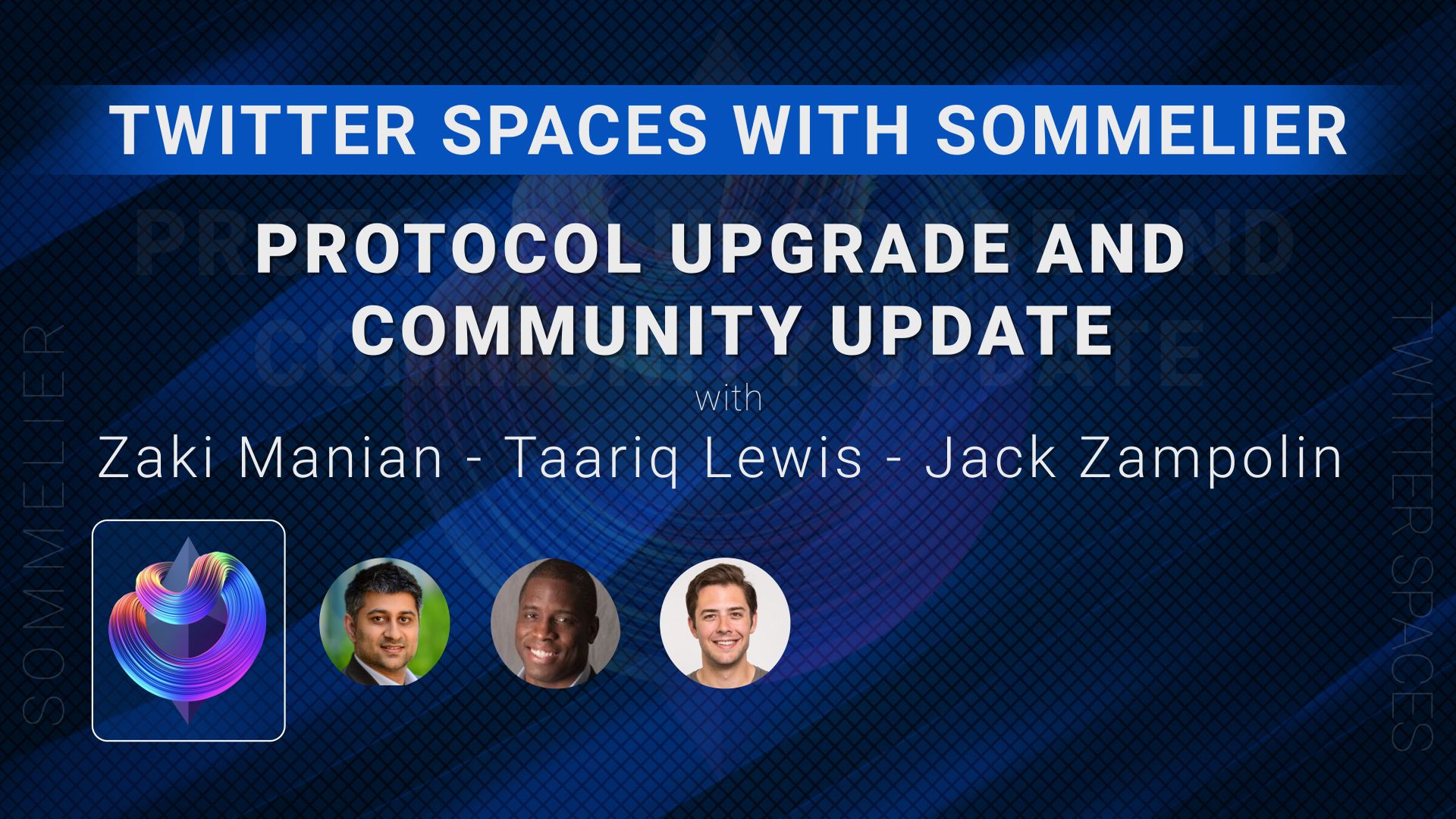
Twitter Spaces With Sommelier: Protocol Upgrade and Community Update
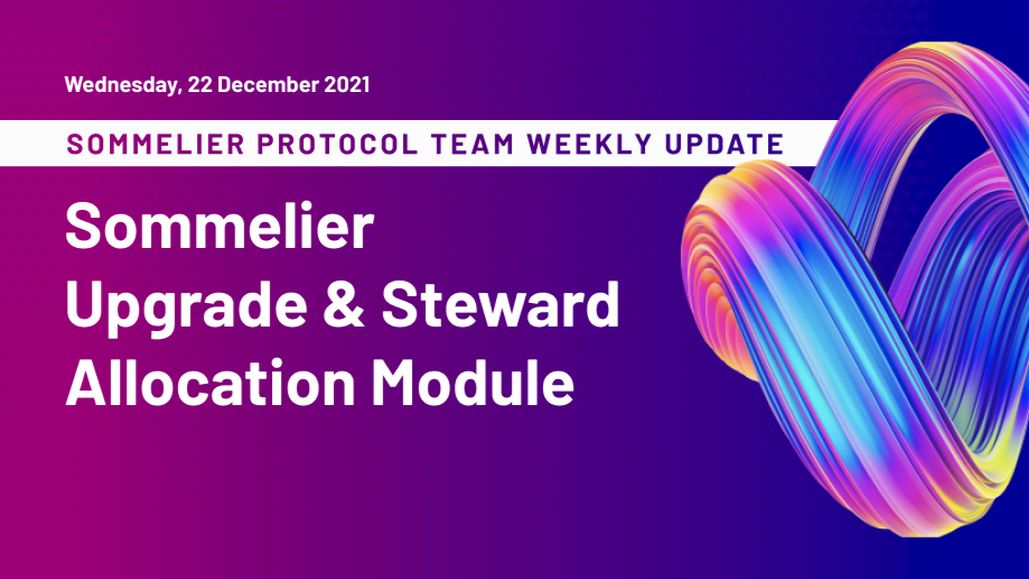
Sommelier Protocol Team Weekly Update #4
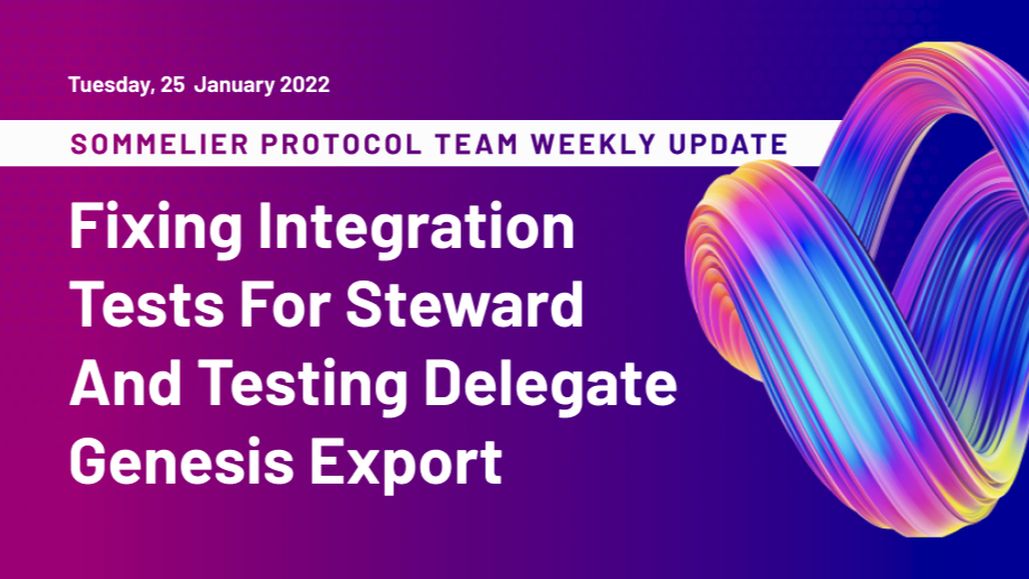
Sommelier Protocol Team Weekly Update #6

Twitter Spaces With Sommelier: SOMM Airdrop Proposal Data Analysis
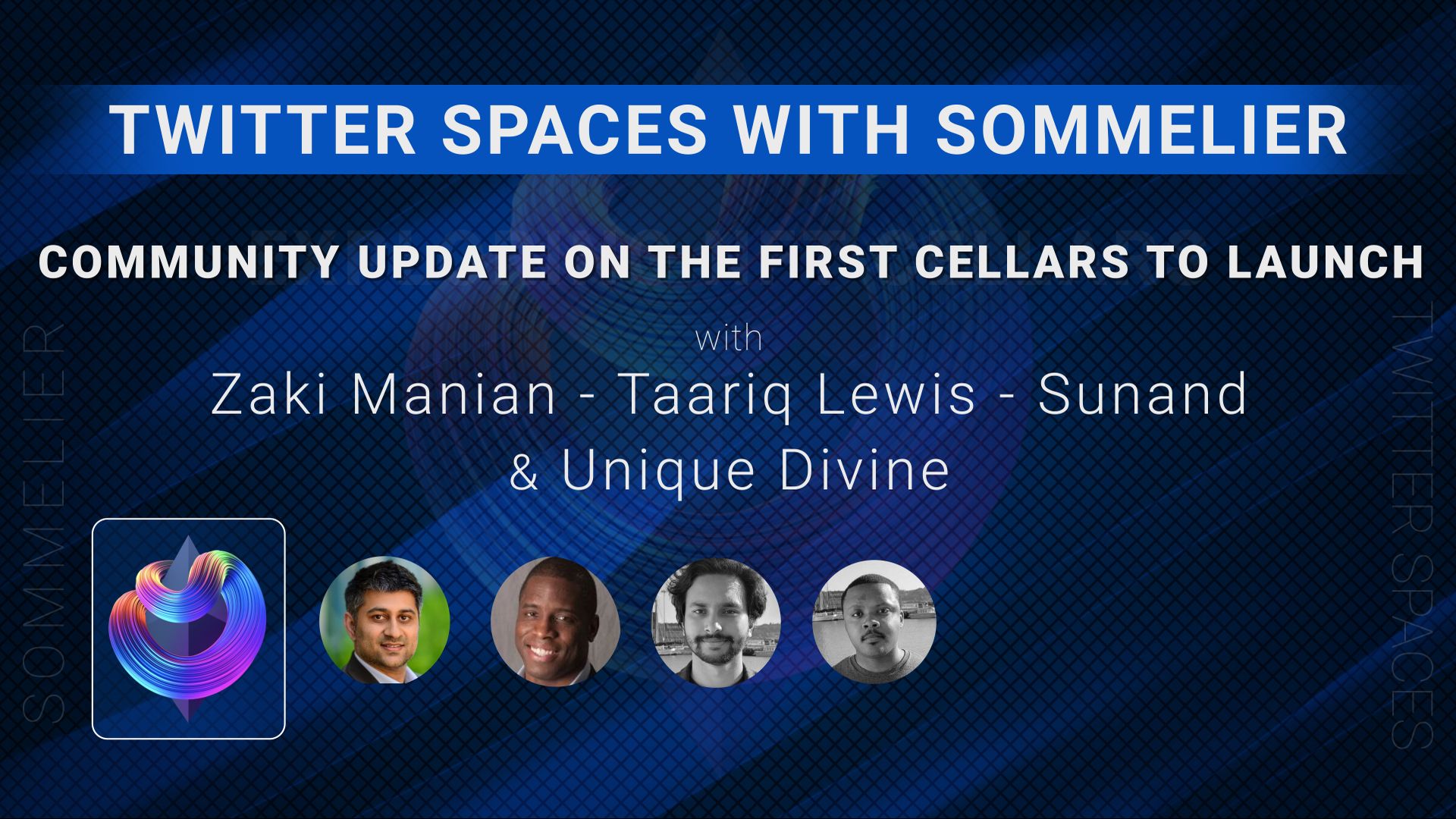
Twitter Spaces With Sommelier: Community Update on the First Cellars to Launch
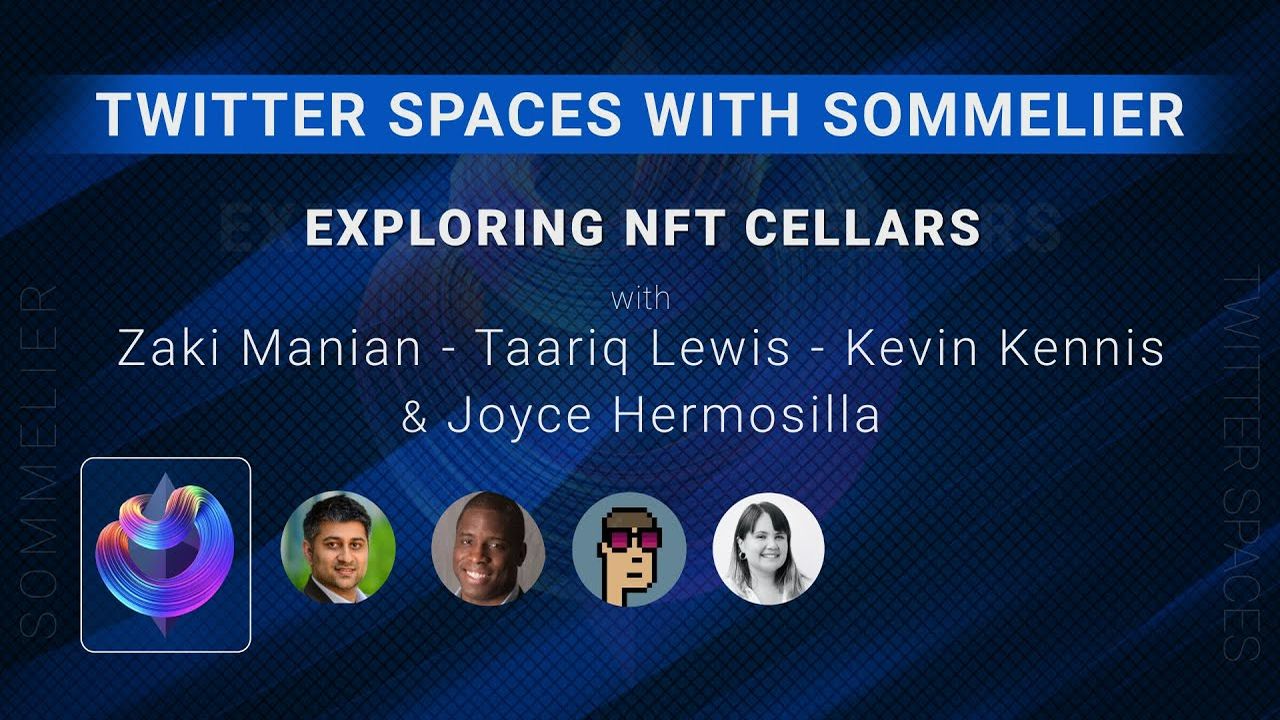
Twitter Spaces With Sommelier: Exploring NFT Cellars
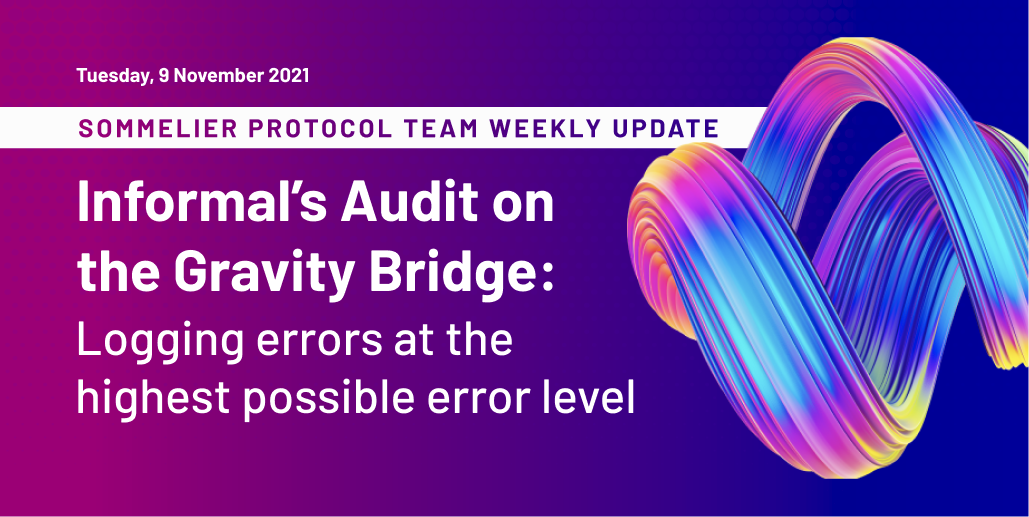
Sommelier Protocol Team Weekly Update #1
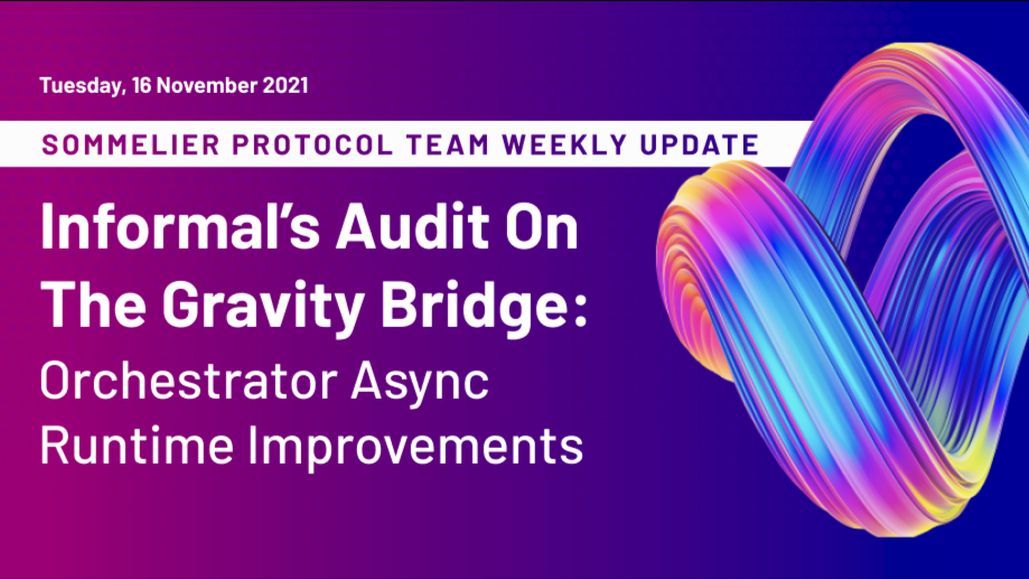
Sommelier Protocol Team Weekly Update #2
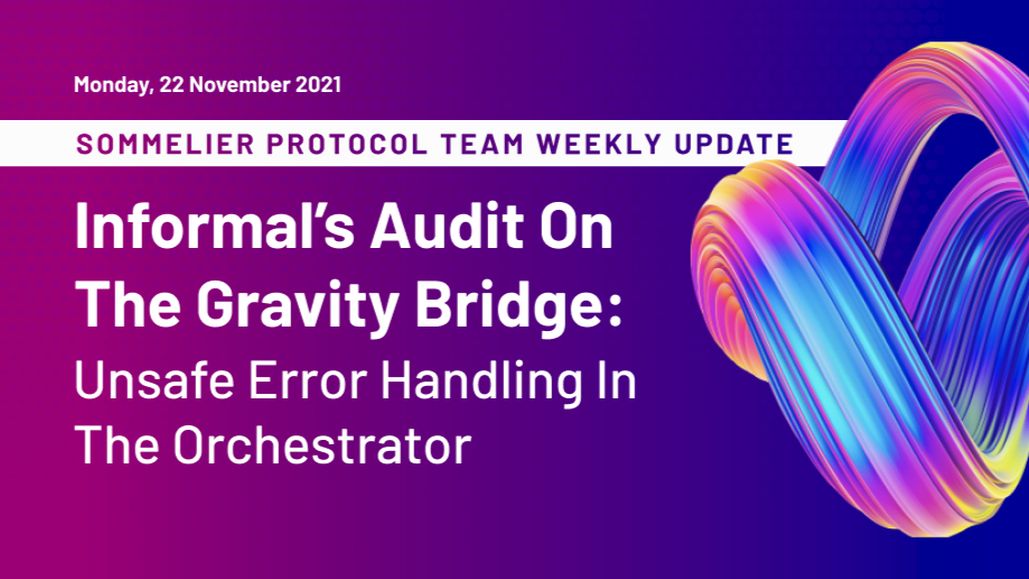
Sommelier Protocol Team Weekly Update #3

Three Things You Need to Know About Sommelier Governance This Week
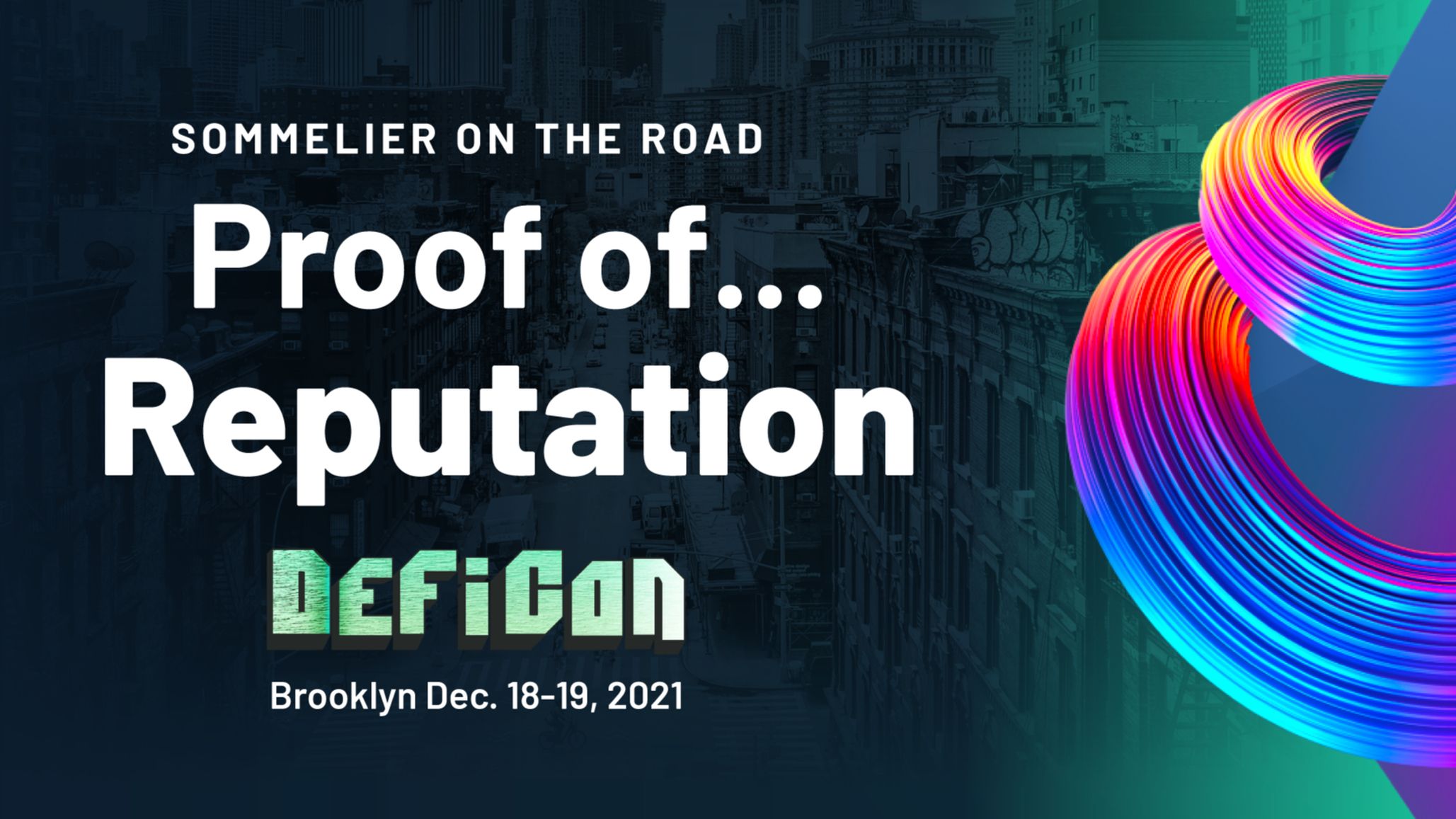
Sommelier On the Road: PROOF OF…REPUTATION
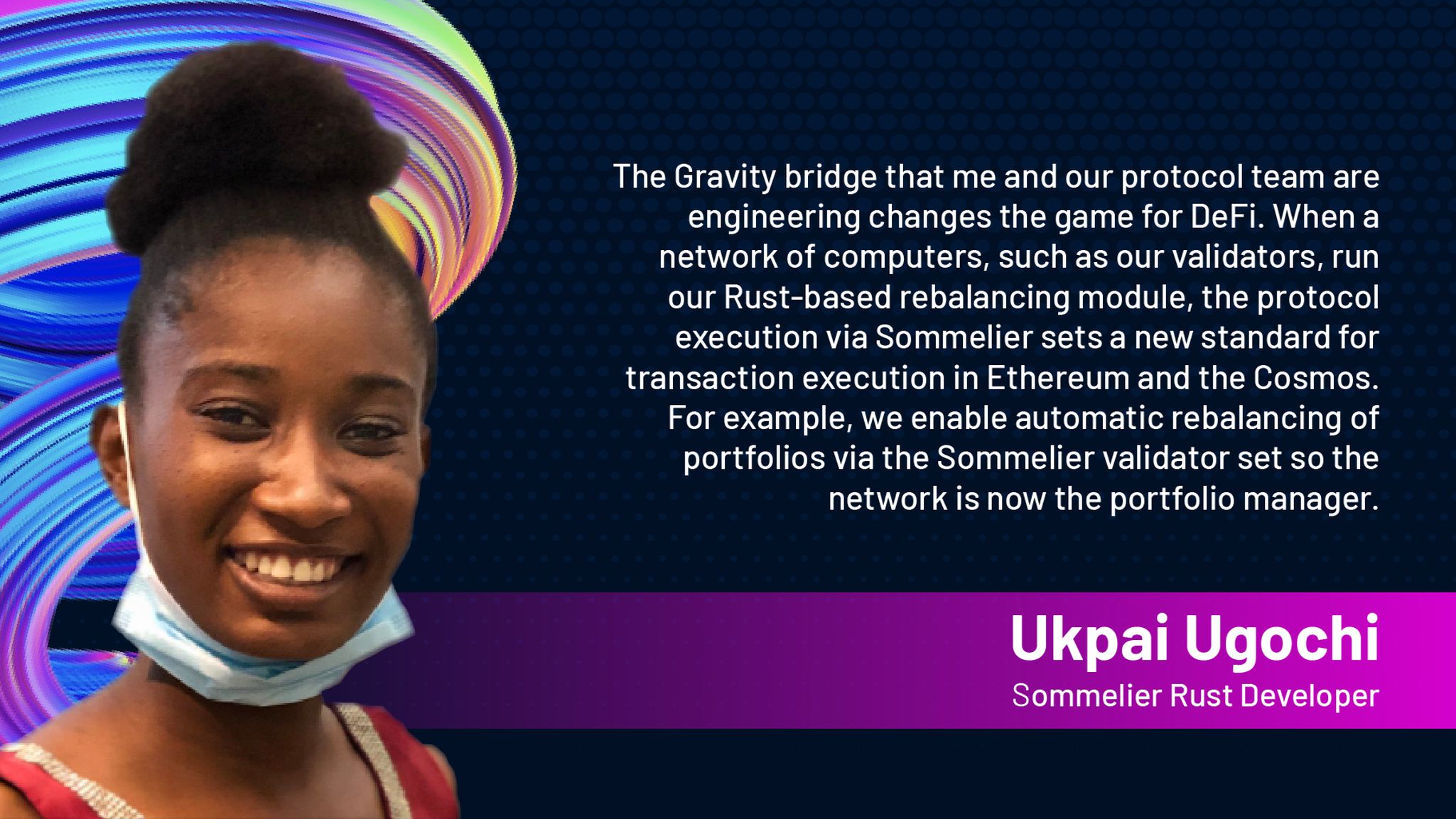
Introducing Ukpai Ugochi - Working on The Sommelier Cellars Rebalancer

Sommelier Announces 23MM Series A Mainnet Round to launch Automated DeFi via the Cosmos
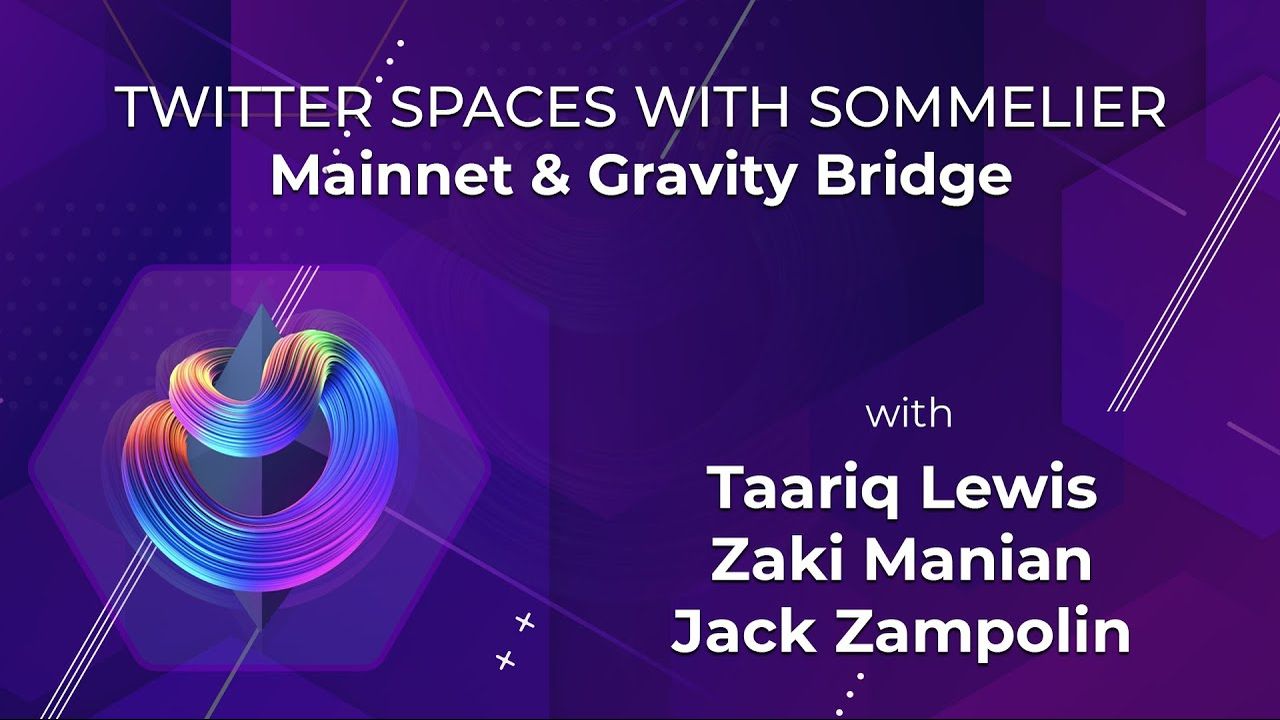
Twitter Spaces With Sommelier: Mainnet Launch & Gravity Bridge
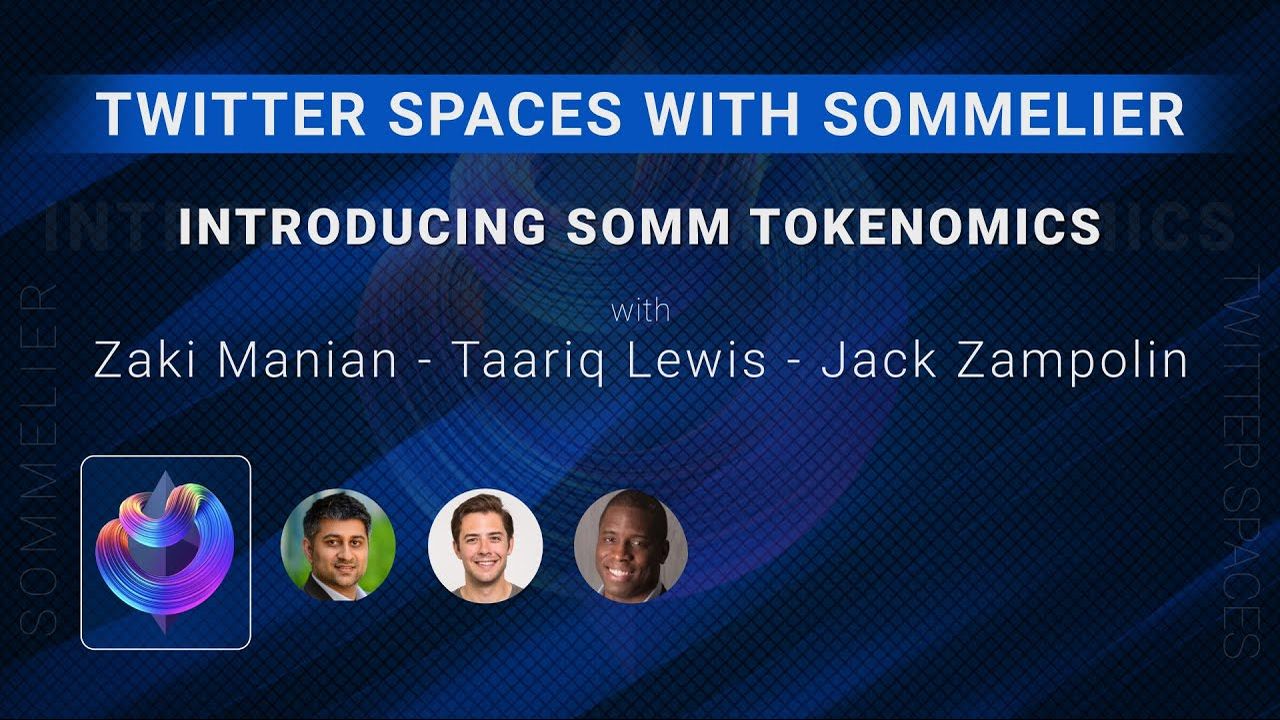
Twitter Spaces With Sommelier: Introducing SOMM Tokenomics
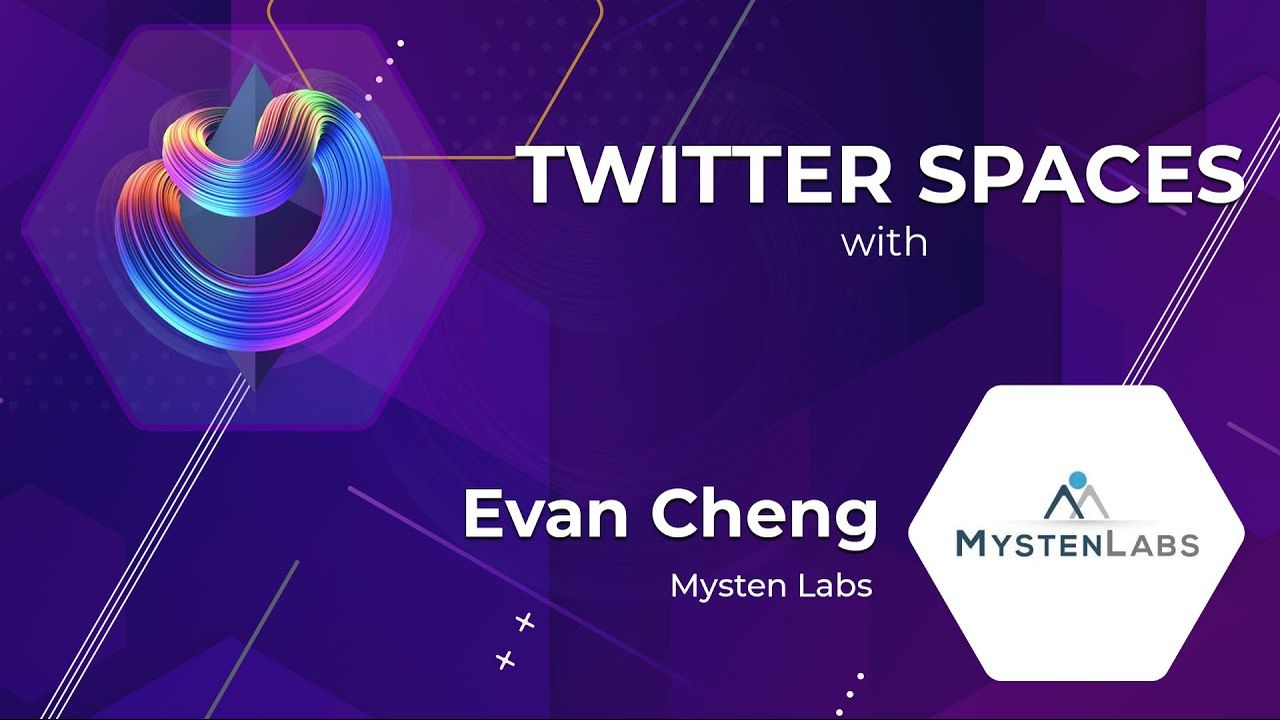
Twitter Spaces With Sommelier: Mysten Labs AMA With Evan Cheng

Introducing SIPS and Sommelier’s Governance Structure
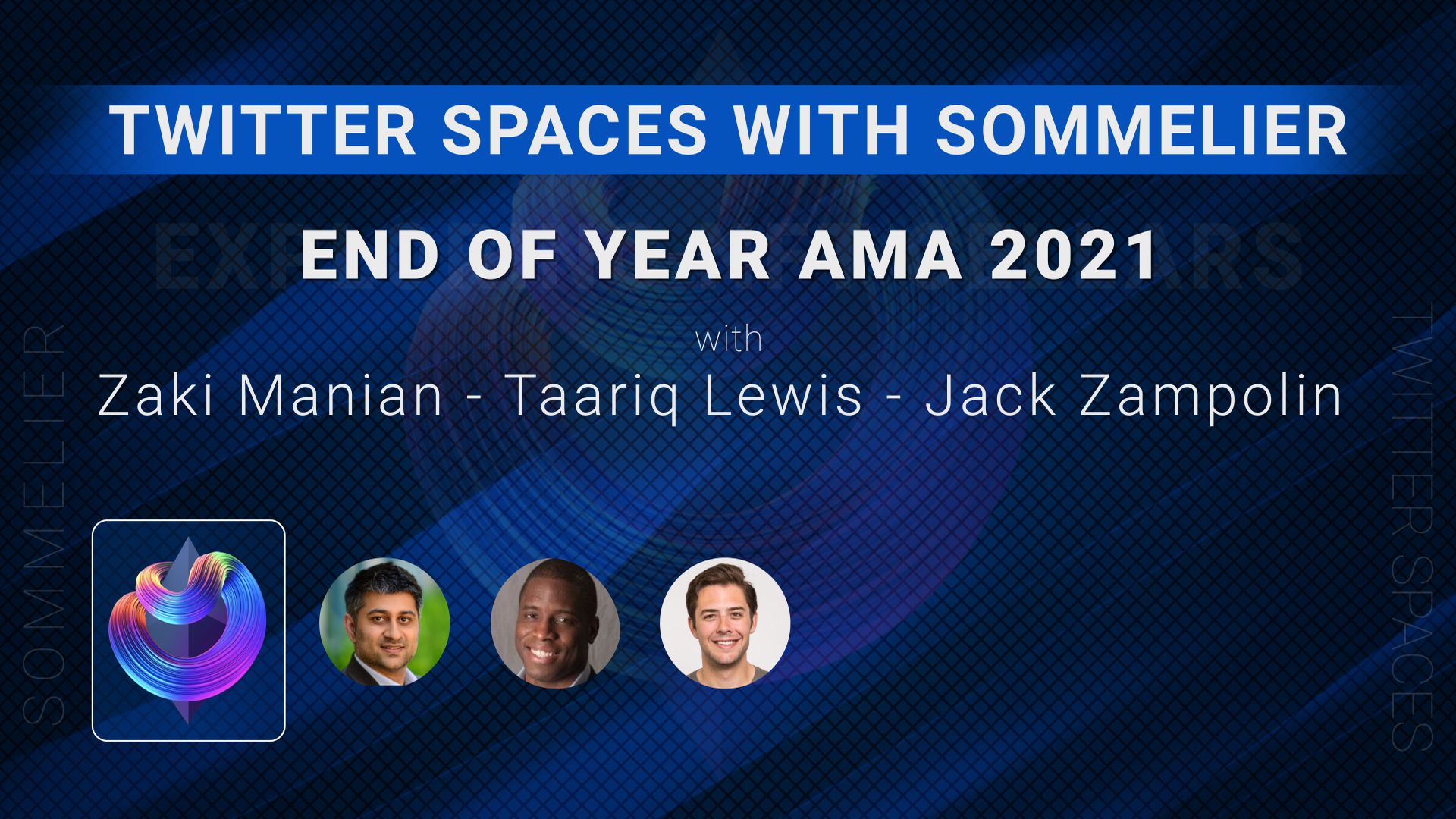
Twitter Spaces With Sommelier: End of Year AMA 2021
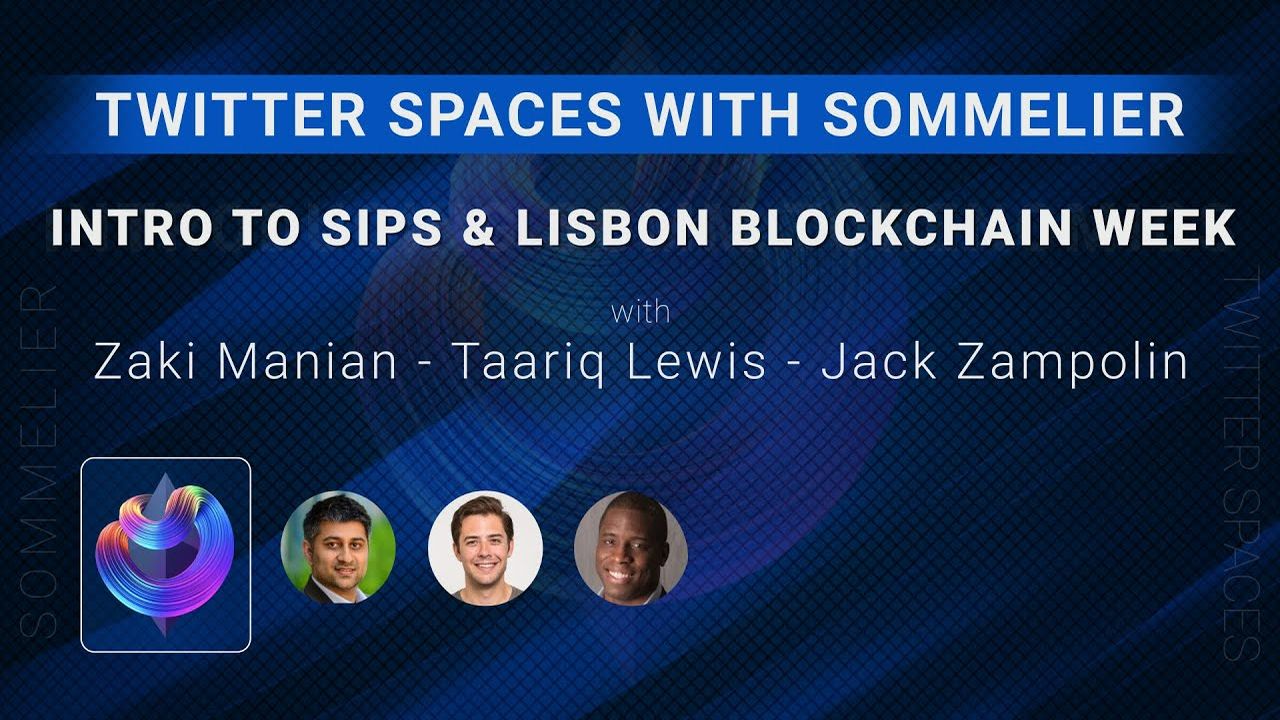
Twitter Spaces With Sommelier: Intro to SIPS & Lisbon Blockchain Week
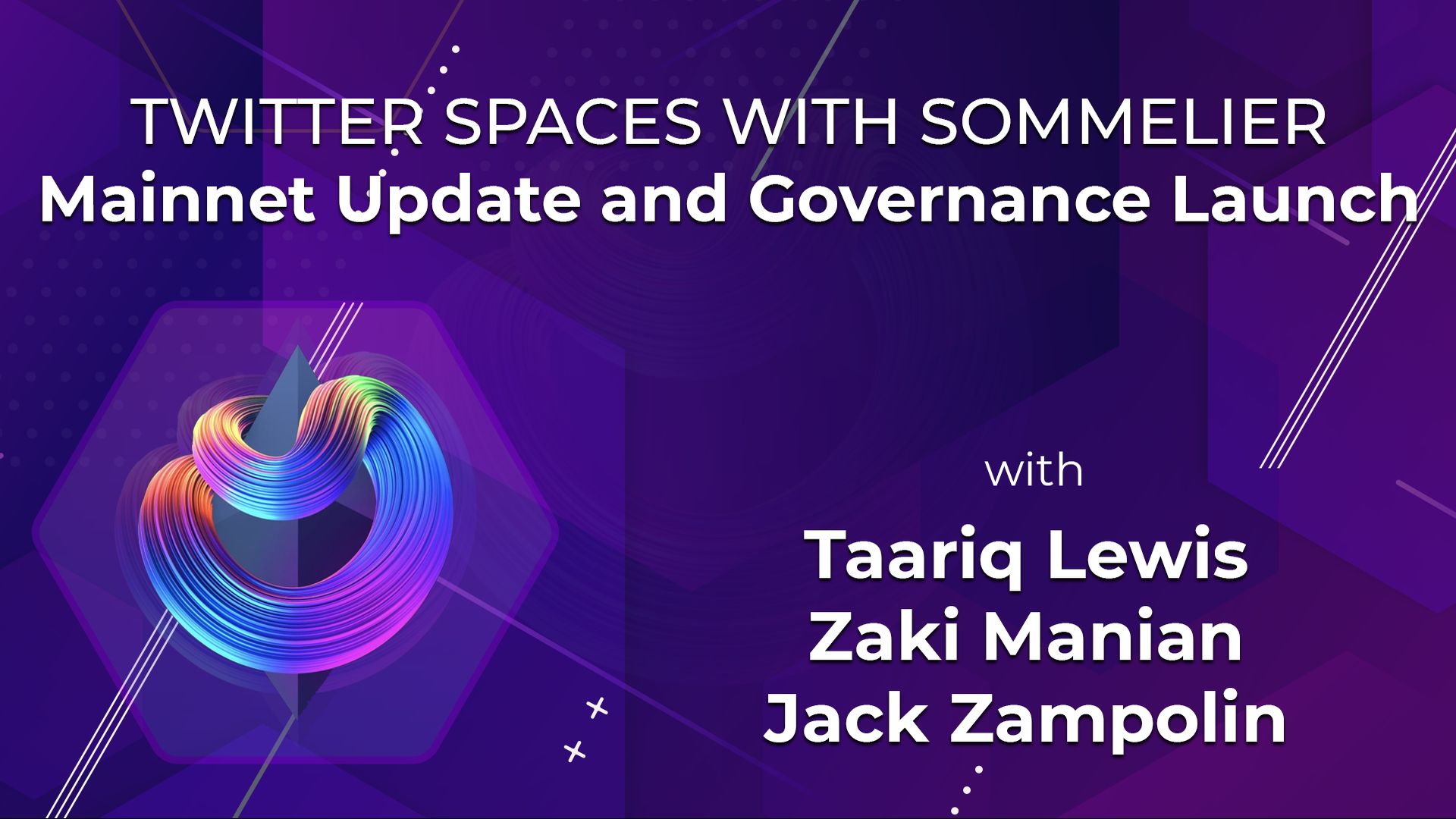
Twitter Spaces With the Sommeliers: Mainnet Update and Governance Launch
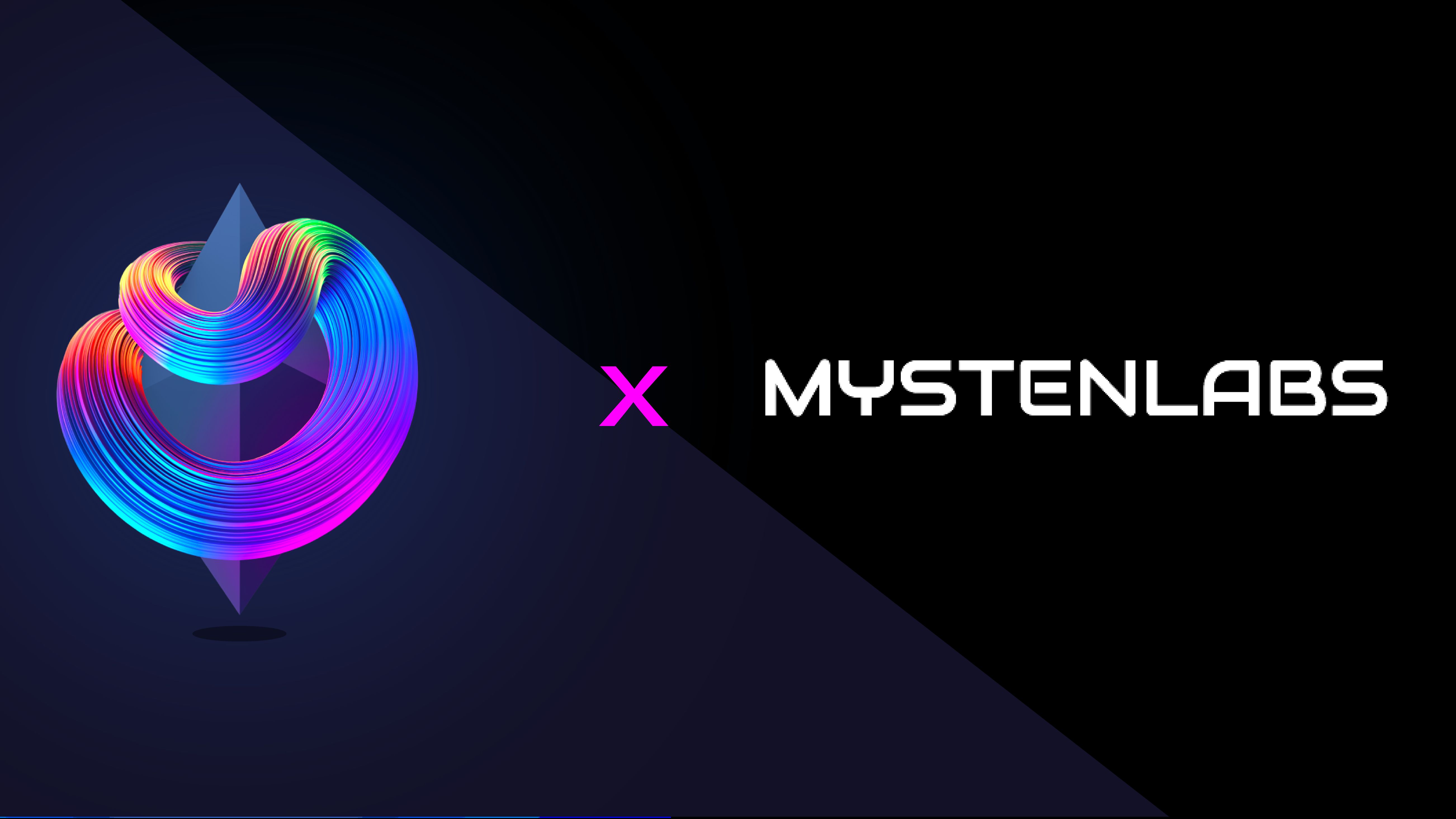
Sommelier Partners With Mysten Labs to Make Sommelier and All Cosmos Blockchains the Fastest Protocols on the Planet
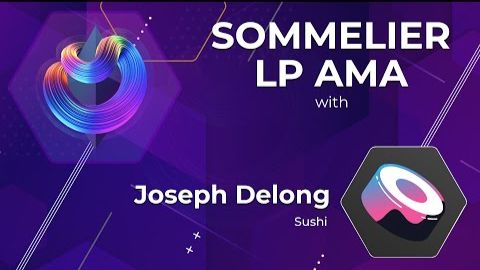
Twitter Spaces With the Sommeliers: Sushi AMA With Joseph Delong
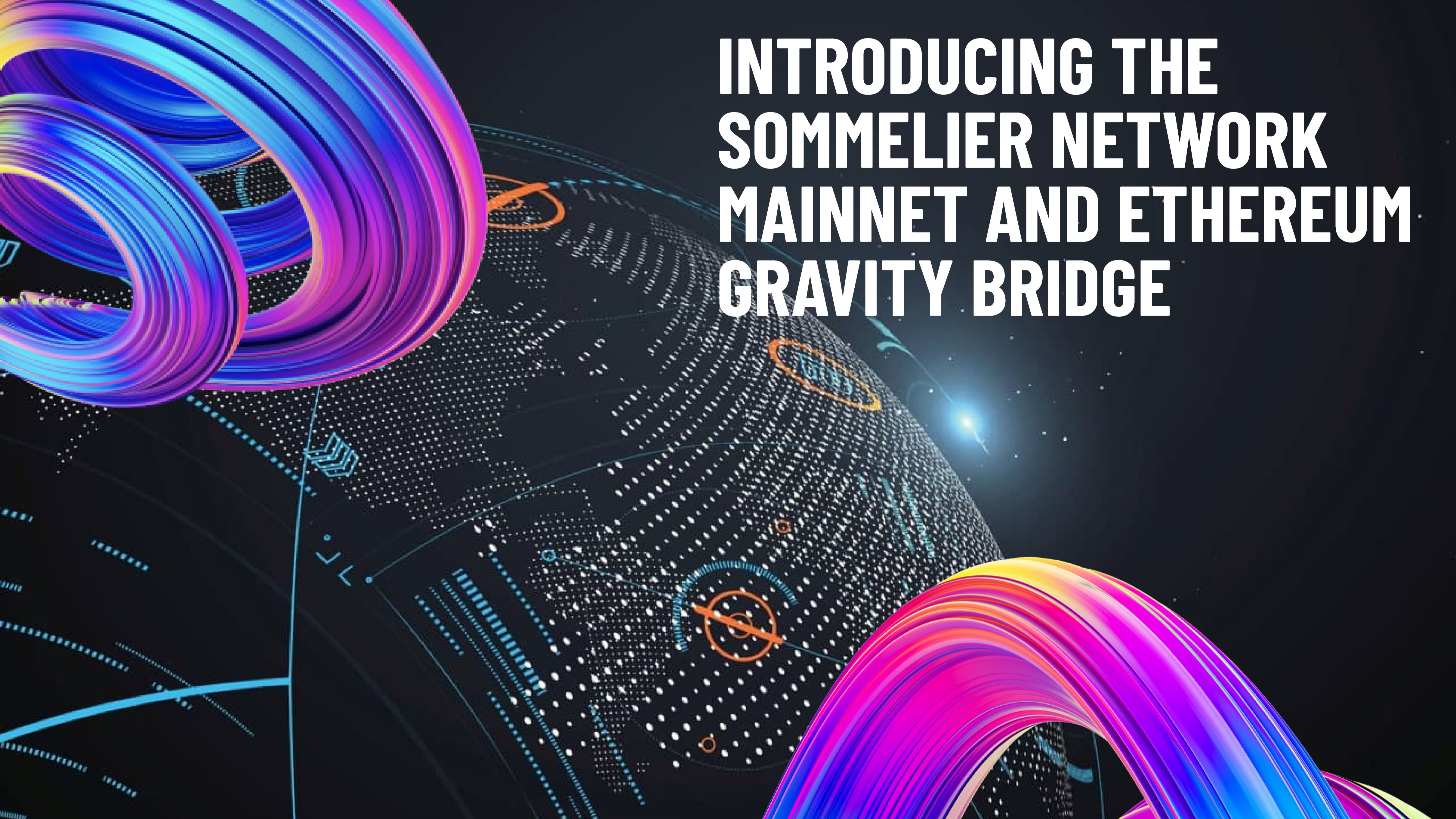
Introducing the Sommelier Network Mainnet and Ethereum Gravity Bridge
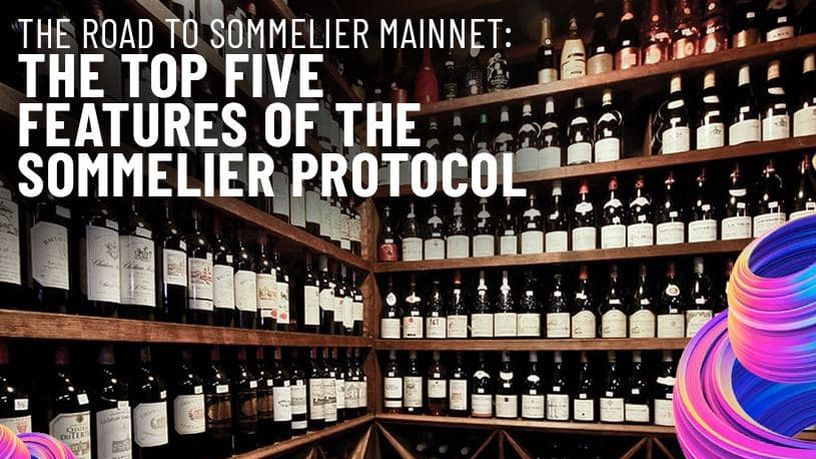
The Top Five Features of the Sommelier Protocol
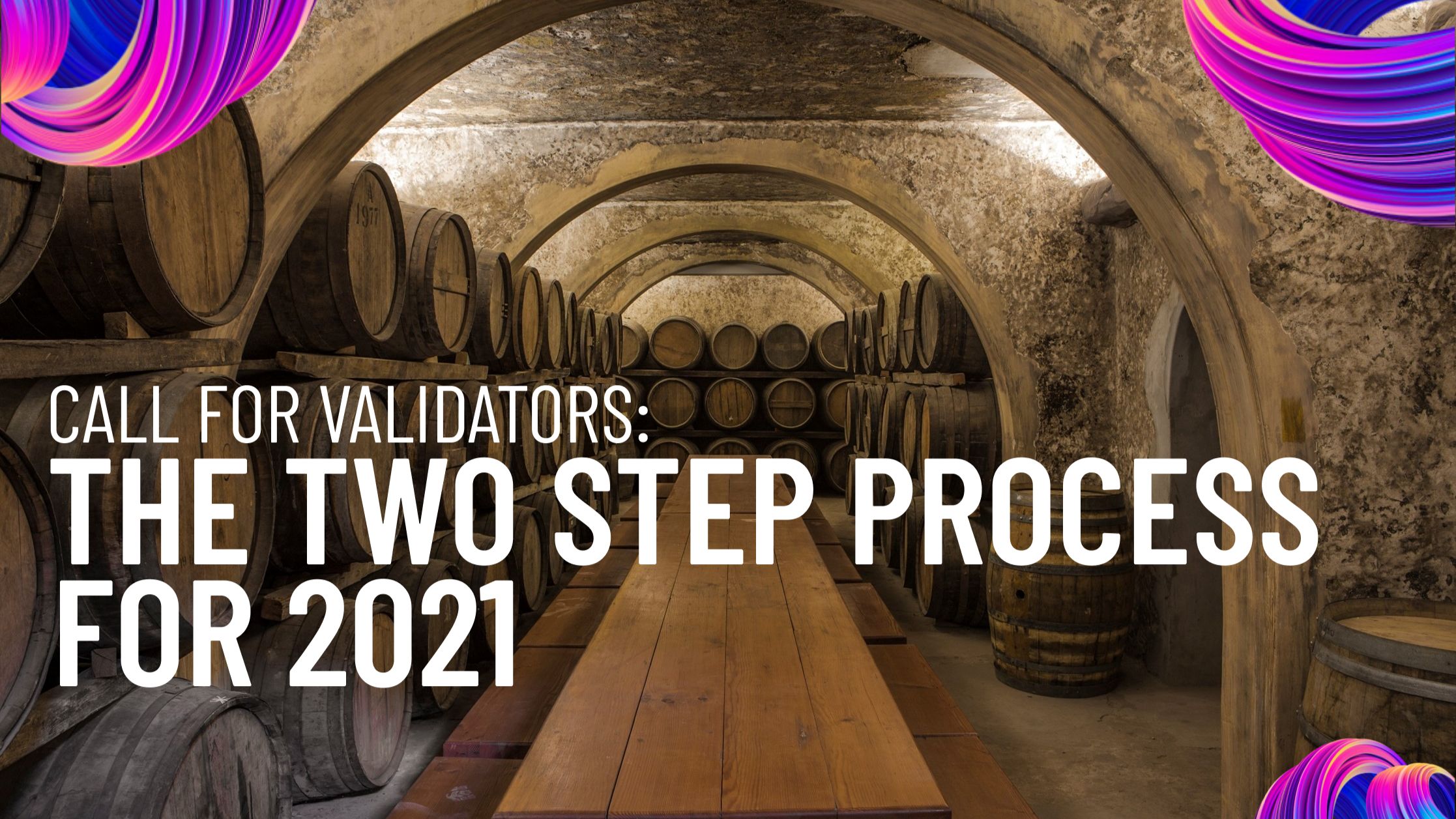
Call for Validators: The Two Step Process for 2021
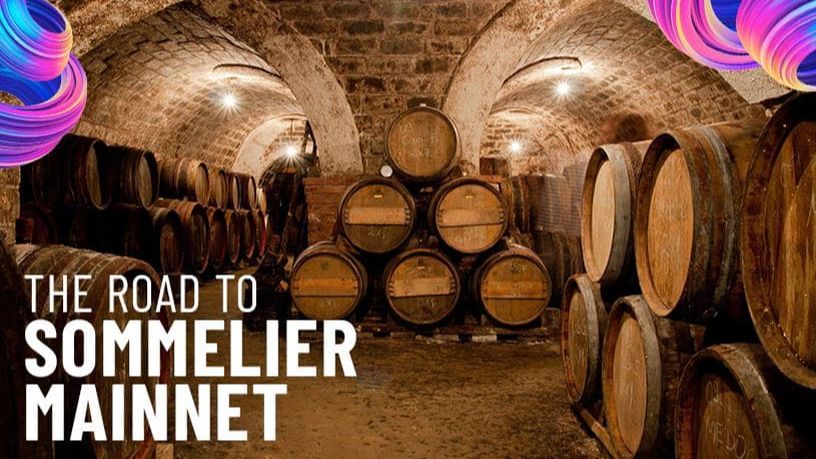
Two New Features Launched to Test Liquidity Management on Uniswap v3

Uniswap v3 Remove Smart Contract Incident Post Mortem for Sommelier
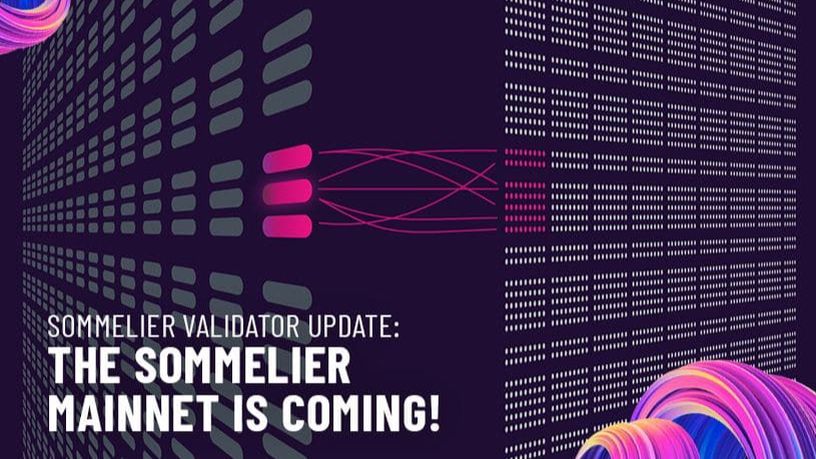
Call for Validators: Road to Sommelier Mainnet
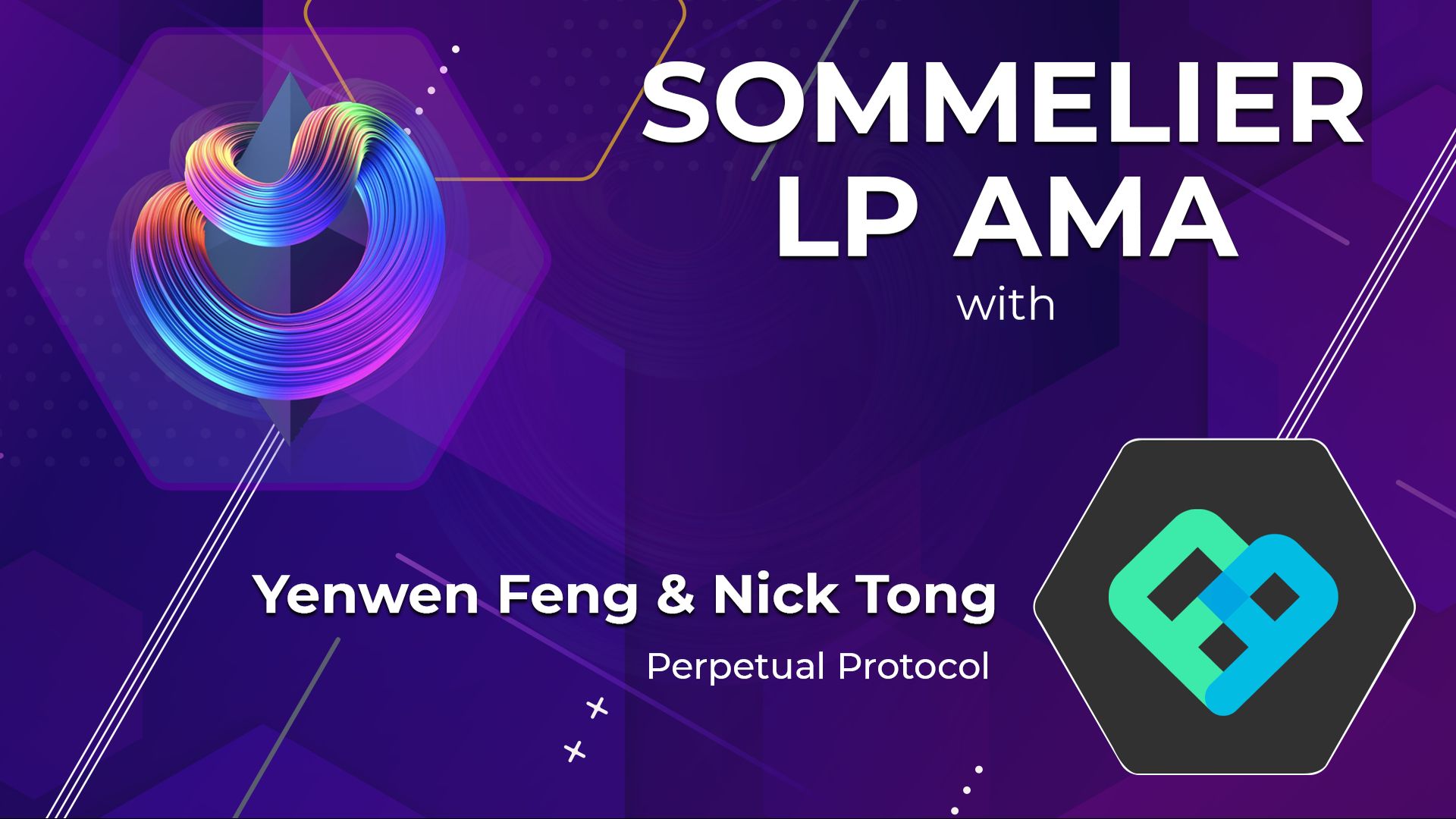
Sommelier Liquidity AMA With Yenwen and Nick From Perpetual Protocol

Sommelier Liquidity AMA With Tascha Pan From Alpha Finance
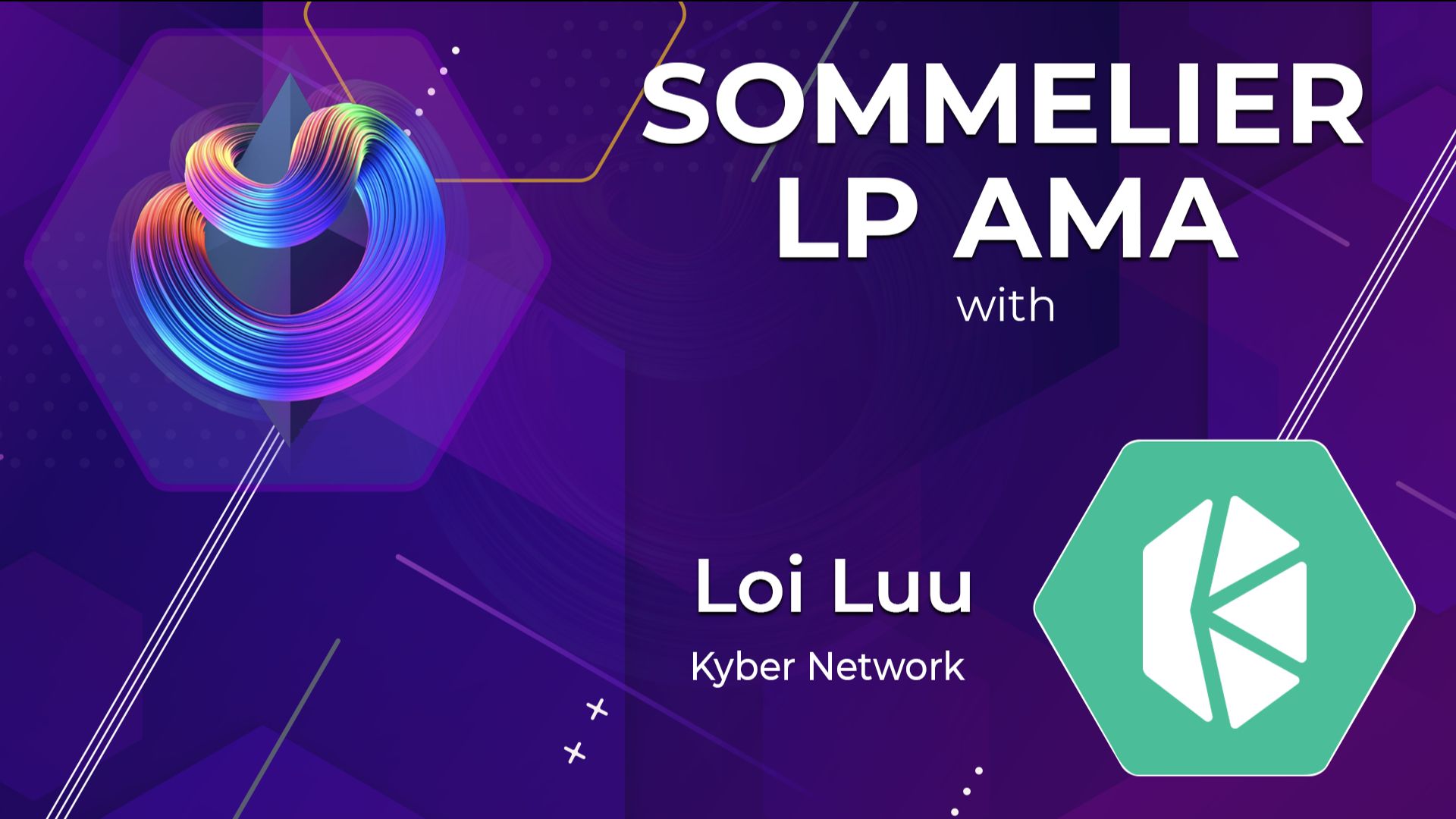
Sommelier Liquidity AMA With Loi Luu From Kyber Network
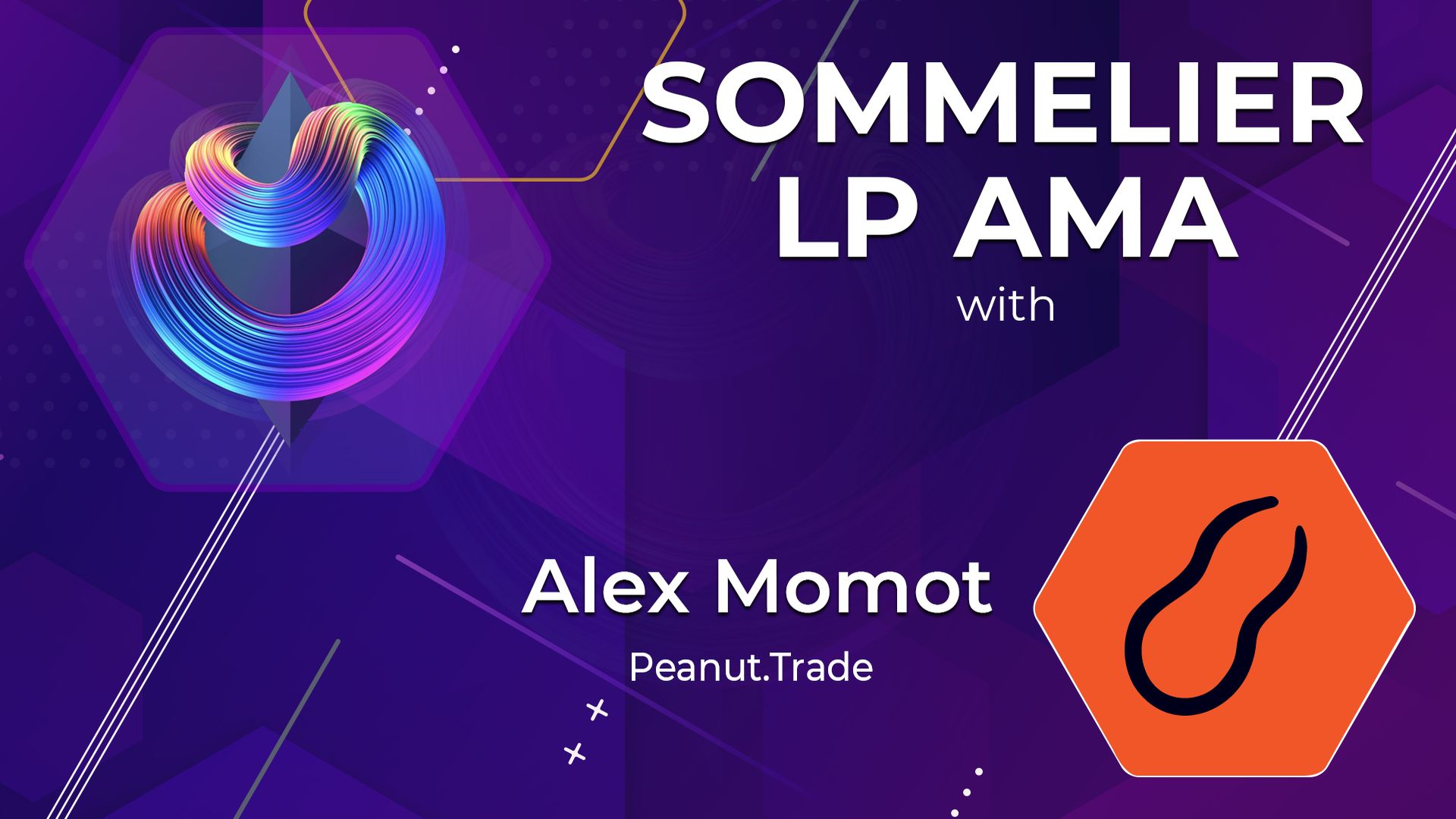
Sommelier Liquidity AMA With Alex From Peanut
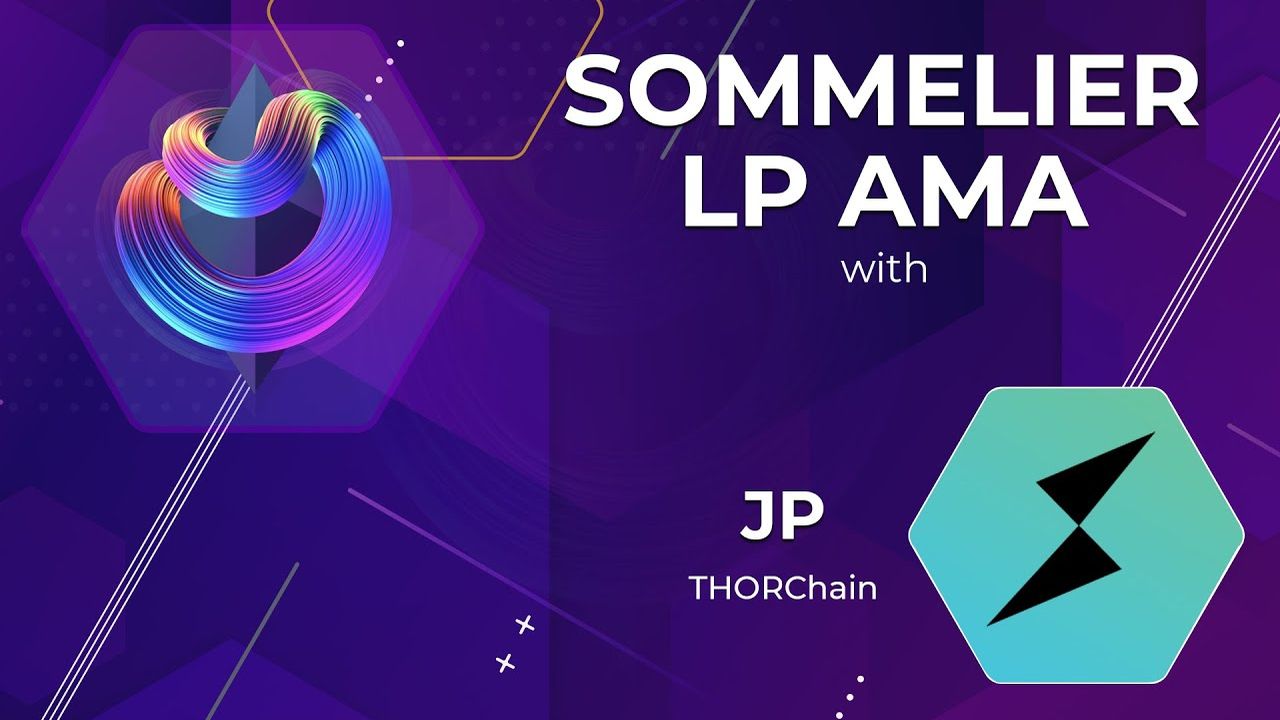
Sommelier Liquidity AMA With JP From THORChain
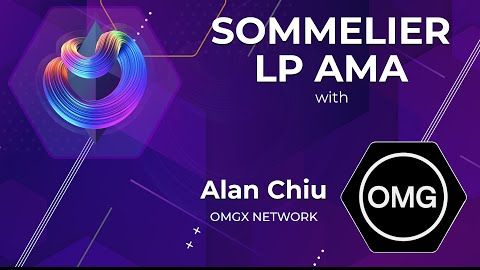
Sommelier Liquidity AMA With Alan Chiu From OMGX Network

Sommelier Liquidity AMA With Ari From Gelato Network
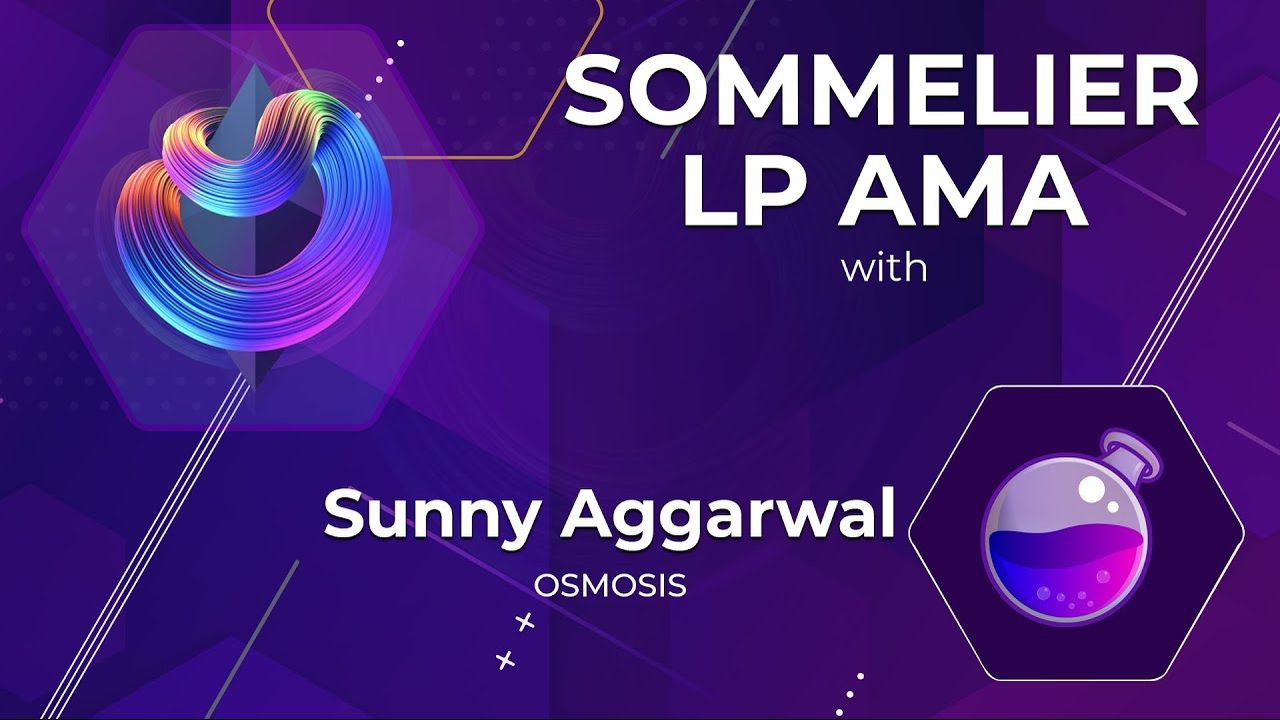
Sommelier Liquidity AMA With Sunny Aggarwal From Osmosis
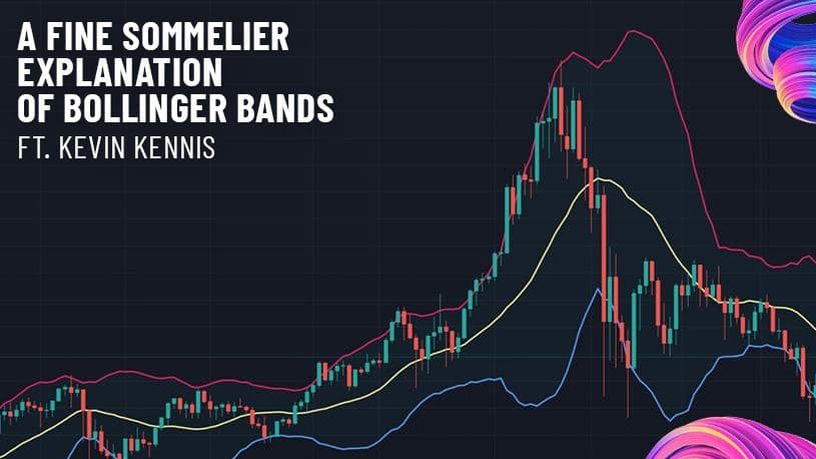
A Fine Sommelier Explanation of Bollinger Bands With Kevin Kennis
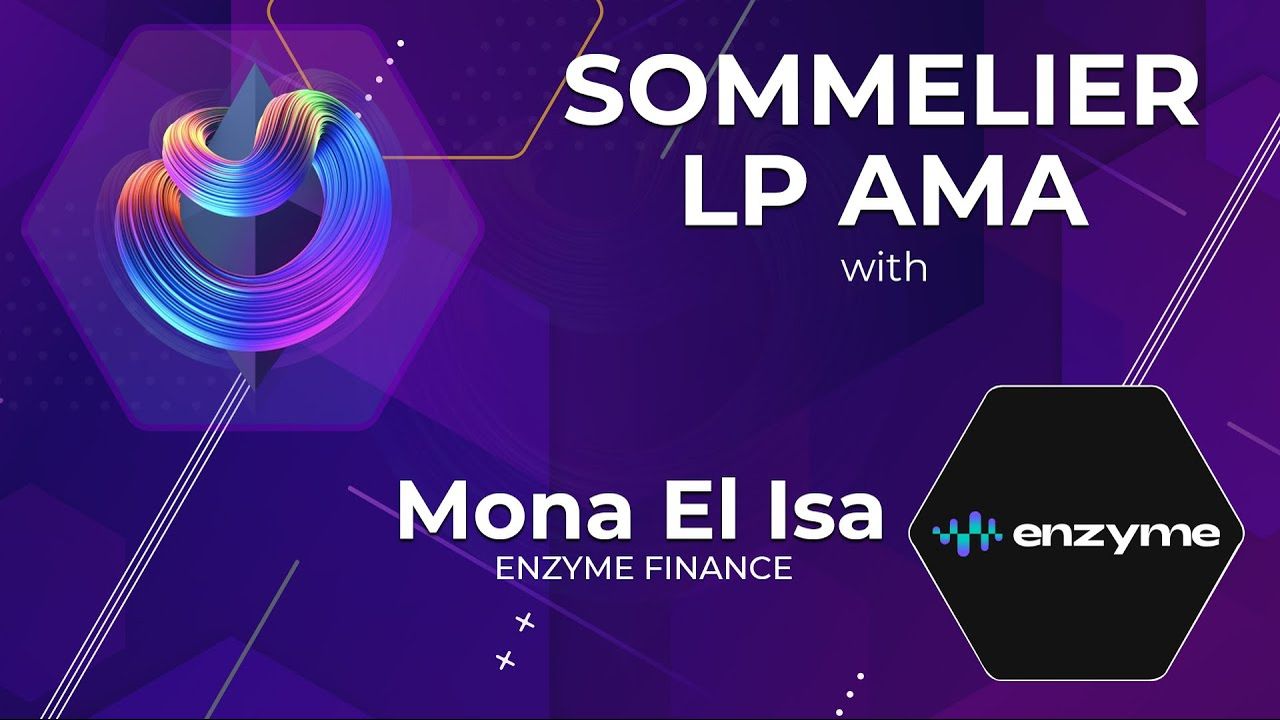
Sommelier Liquidity AMA With Mona El Isa From Enzyme
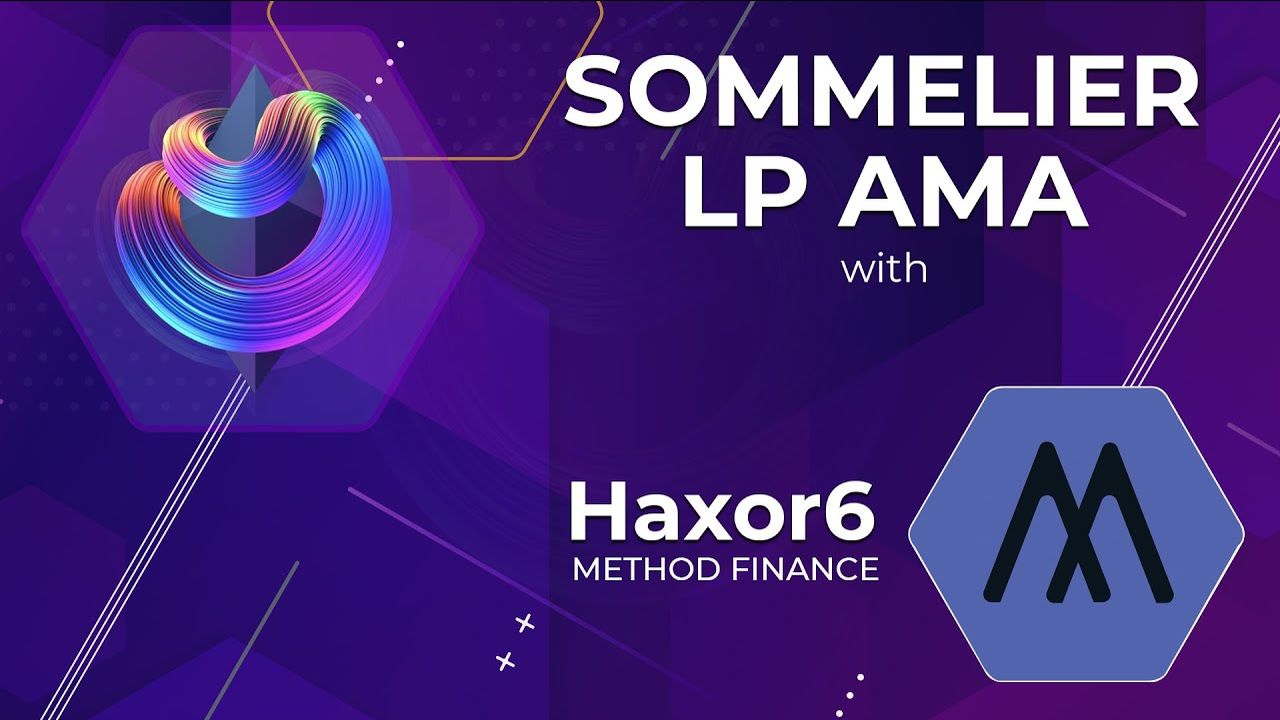
Sommelier Liquidity AMA With Haxor From Method Finance

Sommelier Liquidity AMA With Tor From Secret Network
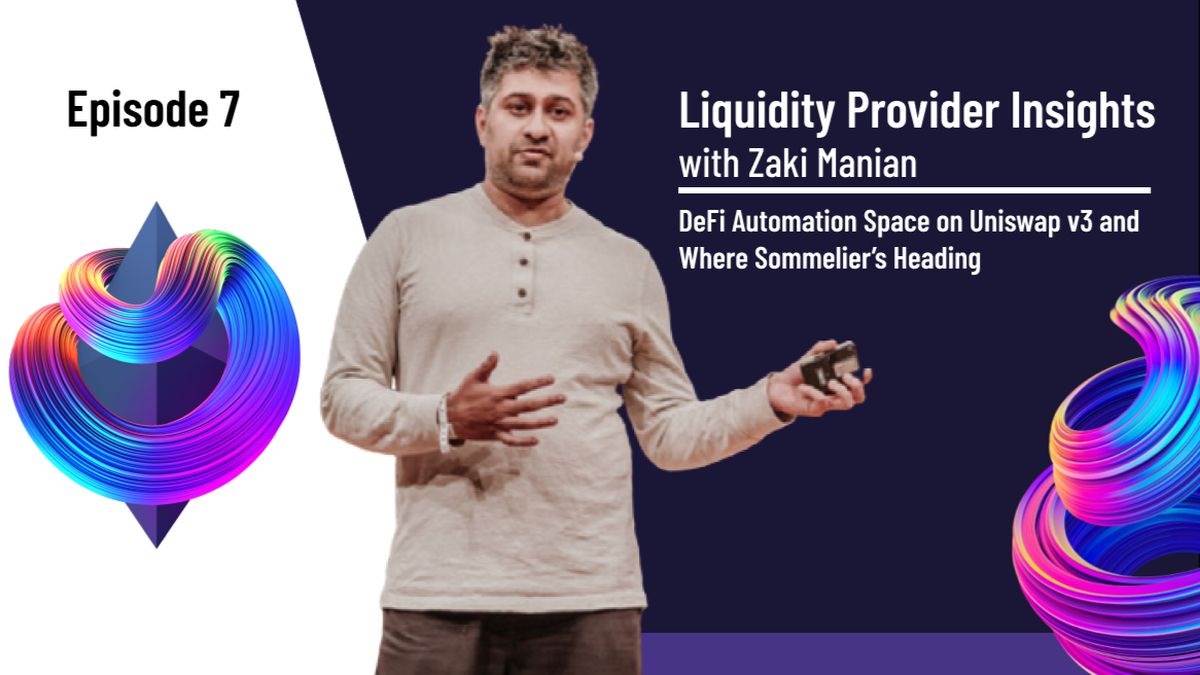
Liquidity Provider Insights With Zaki Manian - Ep. 7 - DeFi Automation Space on Uniswap v3 and Where Sommelier’s Heading
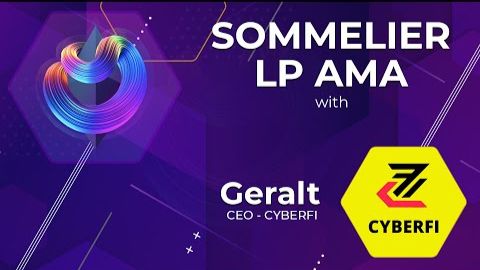
Sommelier Liquidity AMA With Geralt From CyberFi

A Pairings Tutorial of Two Sided Liquidity Addition with Sommelier
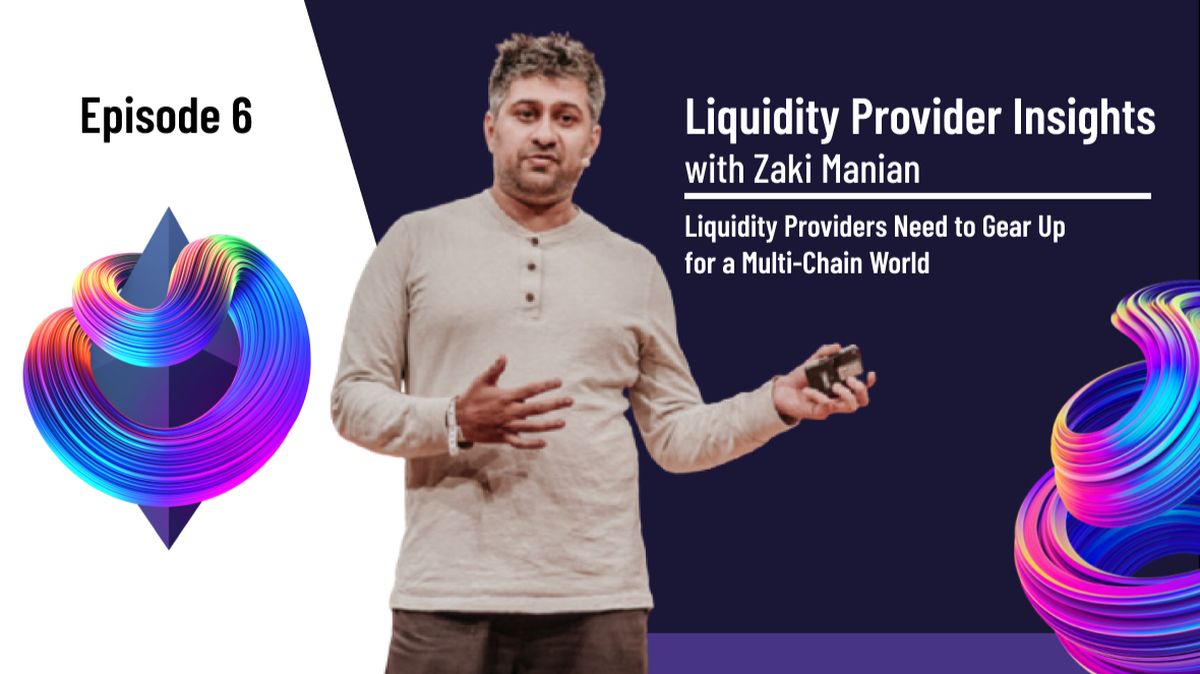
Liquidity Provider Insights with Zaki Manian - Ep. 6 - Liquidity Providers Need to Gear Up for a Multi-Chain World

Three New Summer Features for Liquidity Providers
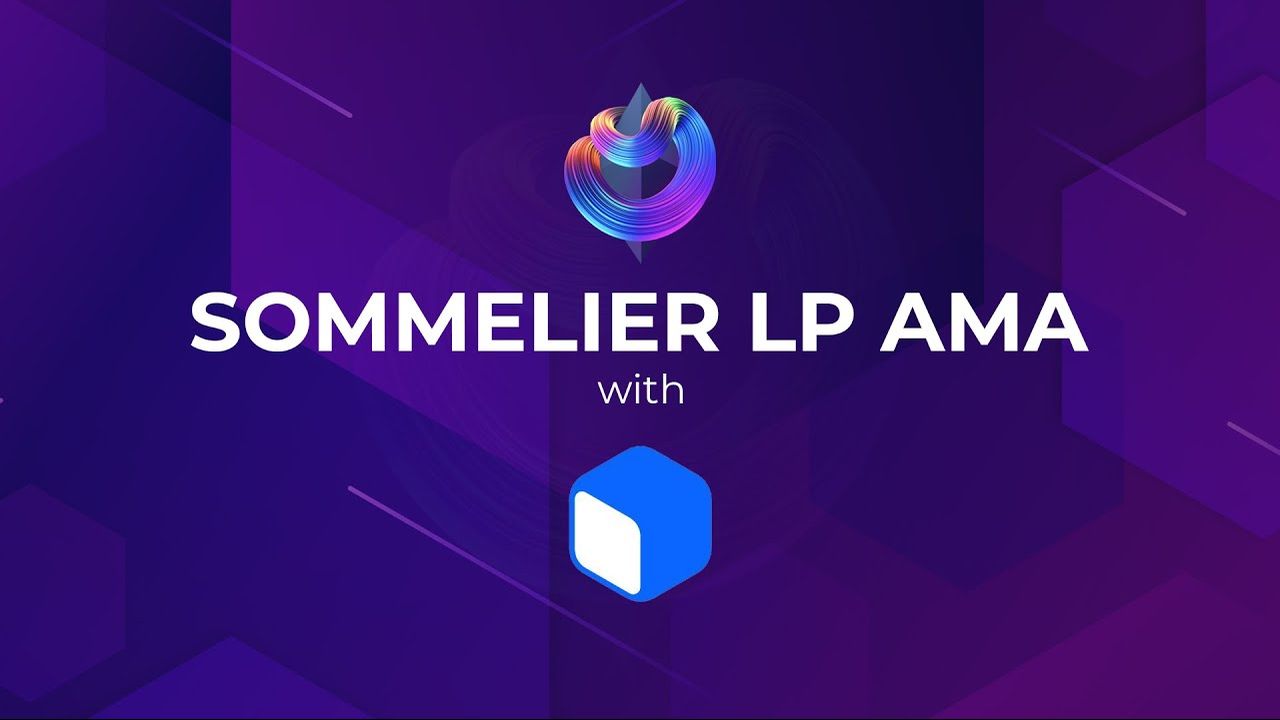
Sommelier Liquidity AMA with Tom C and Max W from Charm

Sommelier Liquidity AMA with Dereek69 & Shalaquiana from BIOPset

Sommelier This Week - June 3rd 2021: The Road to Mainnet
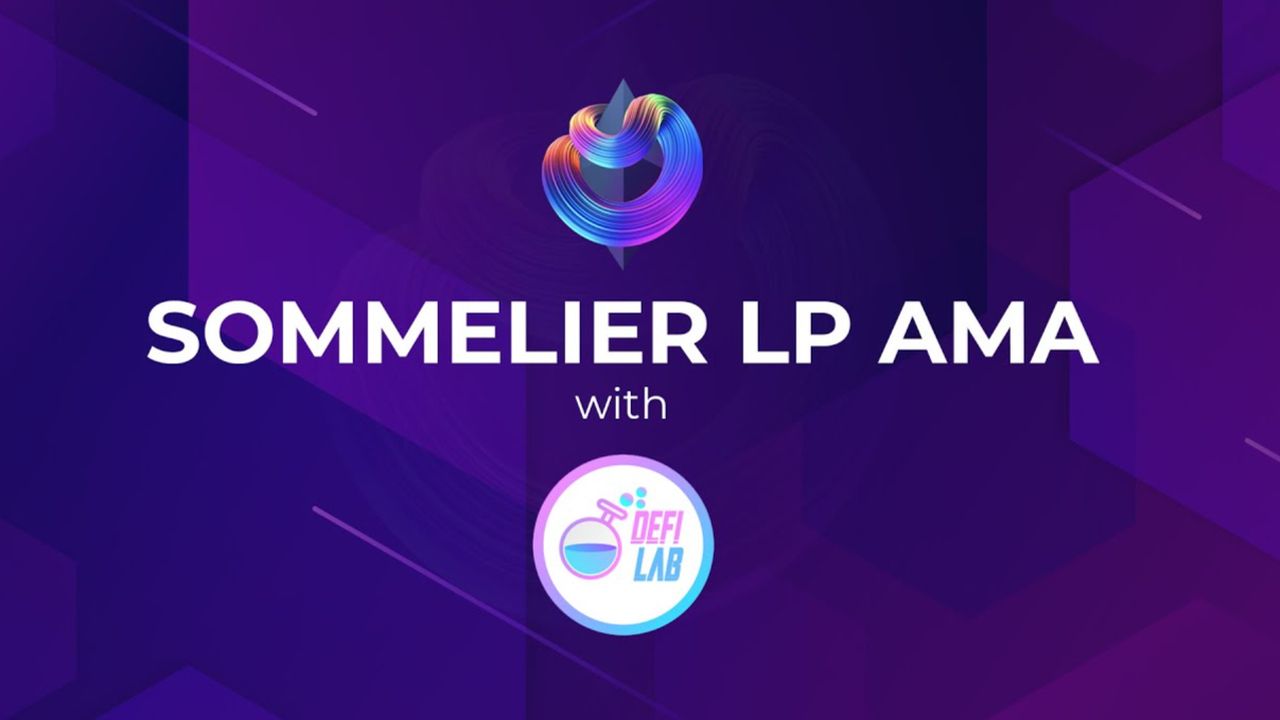
Sommelier Liquidity AMA with Federico Landini from DefiLab

Sommelier Liquidity AMA with Michael Egorov from Curve
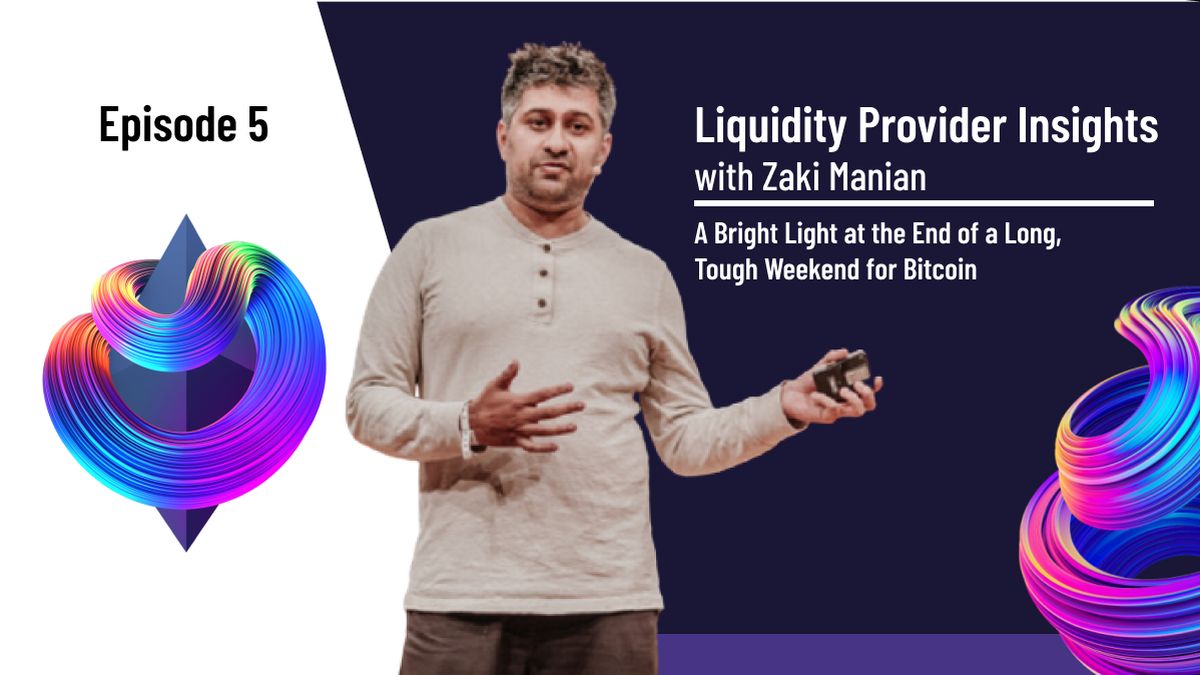
Liquidity Provider Insights with Zaki Manian - Ep. 5 - A Bright Light at the End of a Long, Tough Weekend for Bitcoin

Sommelier This Week - May 27th 2021: What Aspiring Sommelier Validators Need to Know on Last Week’s Protocol and App Progress
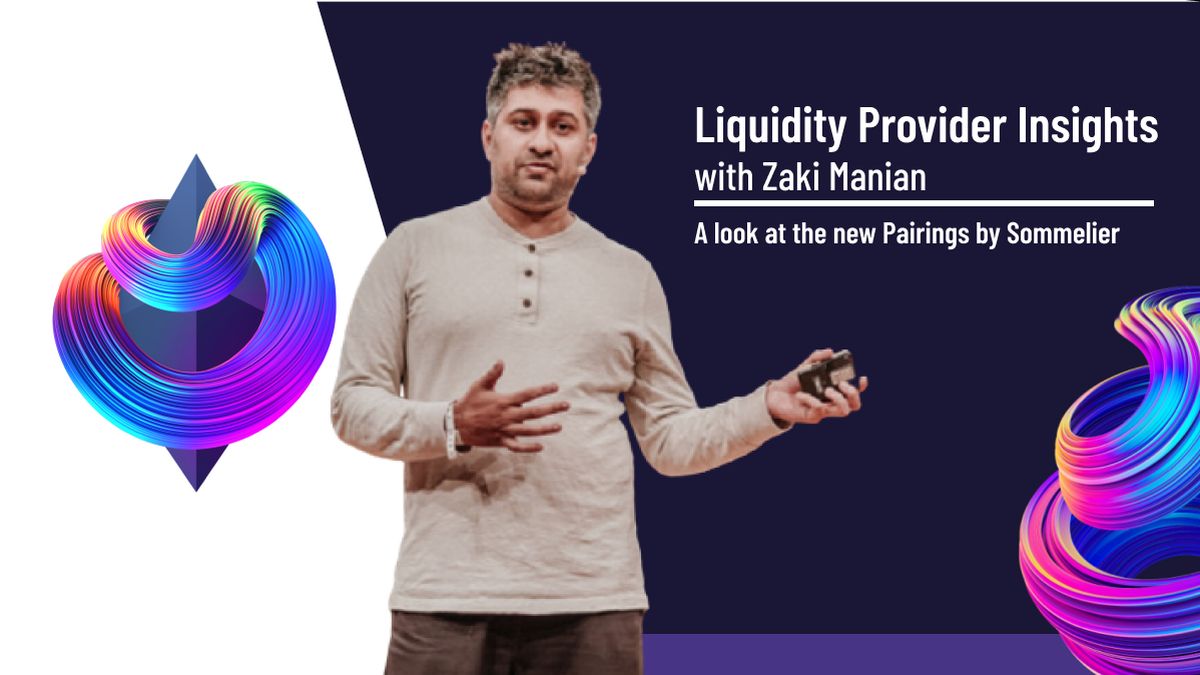
Liquidity Provider Insights with Zaki Manian (Special Edition) - Ep. 4 - New Pairings Release

Sommelier R&D AMA With Yaniv Tal From the Graph
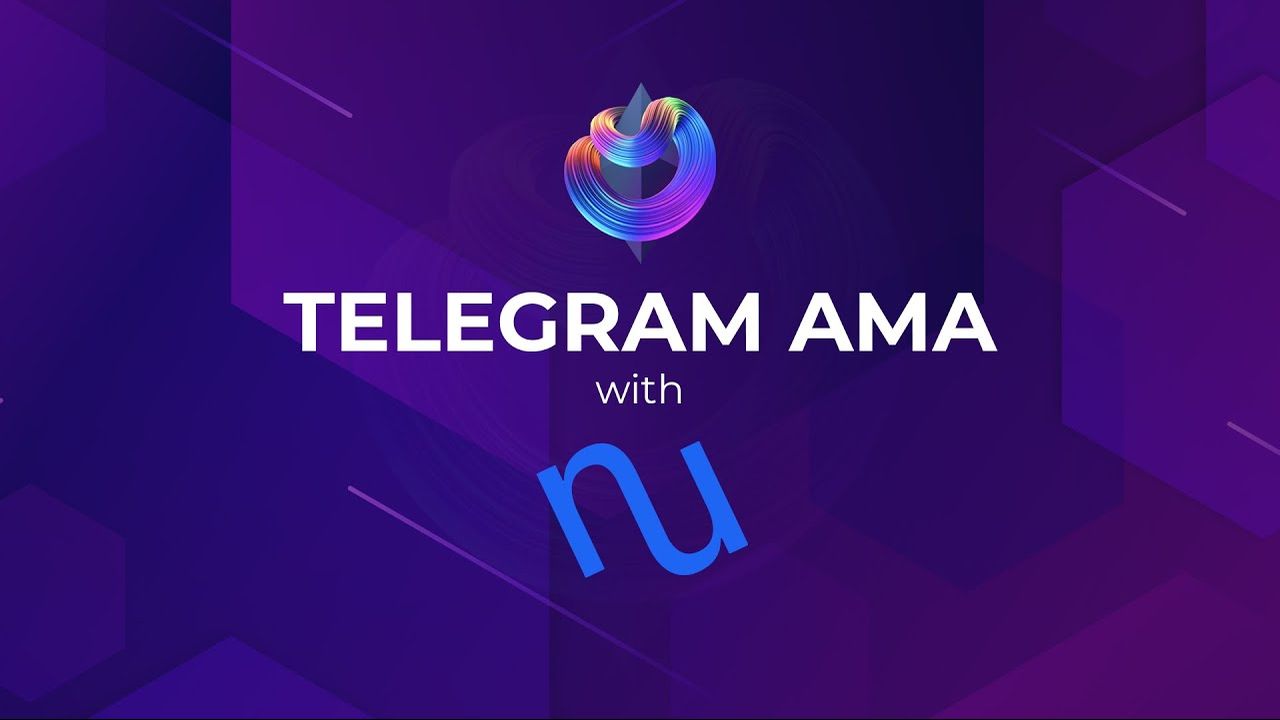
Sommelier Liquidity AMA with MacLane Wilkison from NuCypher

The Eight Steps to Become a Liquidity Provider with Pairings
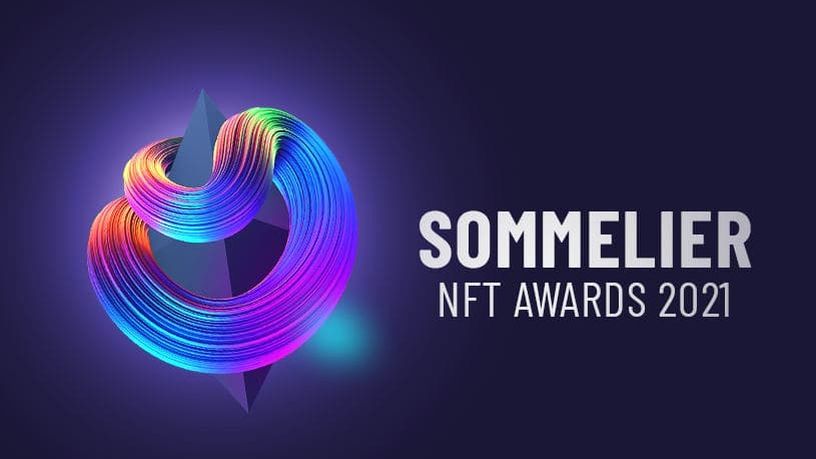
Sommelier NFT Awards - May 18th, 2021
Pairings By Sommelier: The FAQ
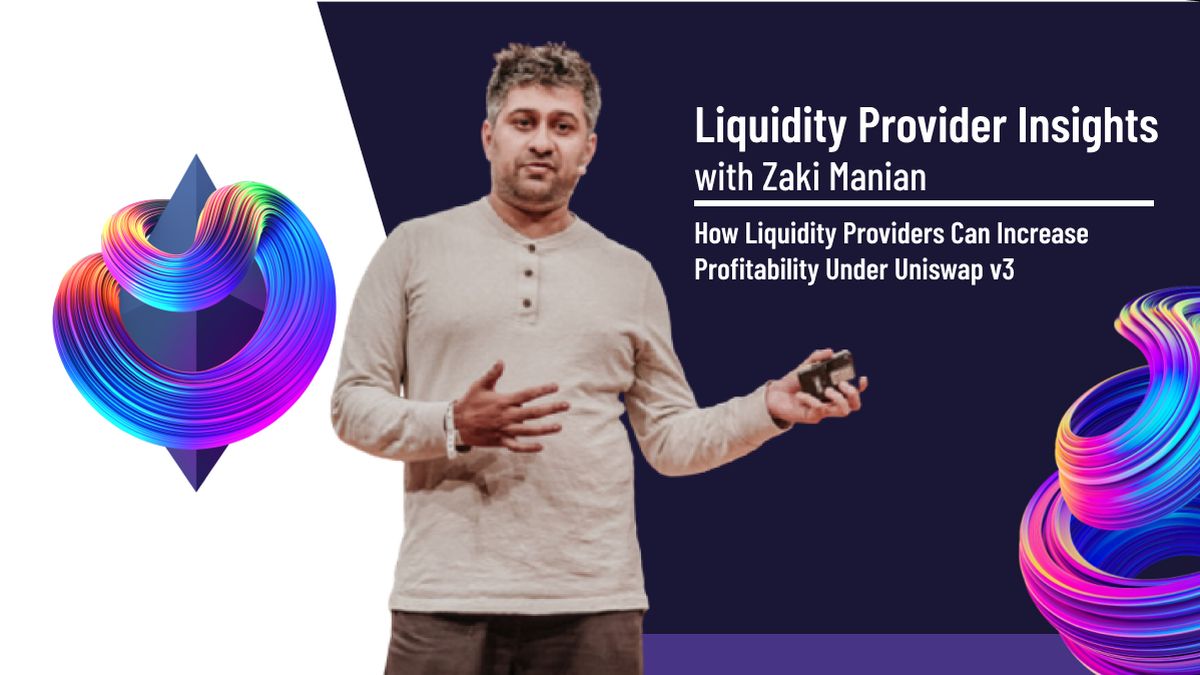
Zaki Manian Breaks Down What Liquidity Providers Need to Know Under Uniswap v3

Sommelier This Week - May 6th 2021: How This Week’s Protocol and App Progress Weaves Together to Make a Product
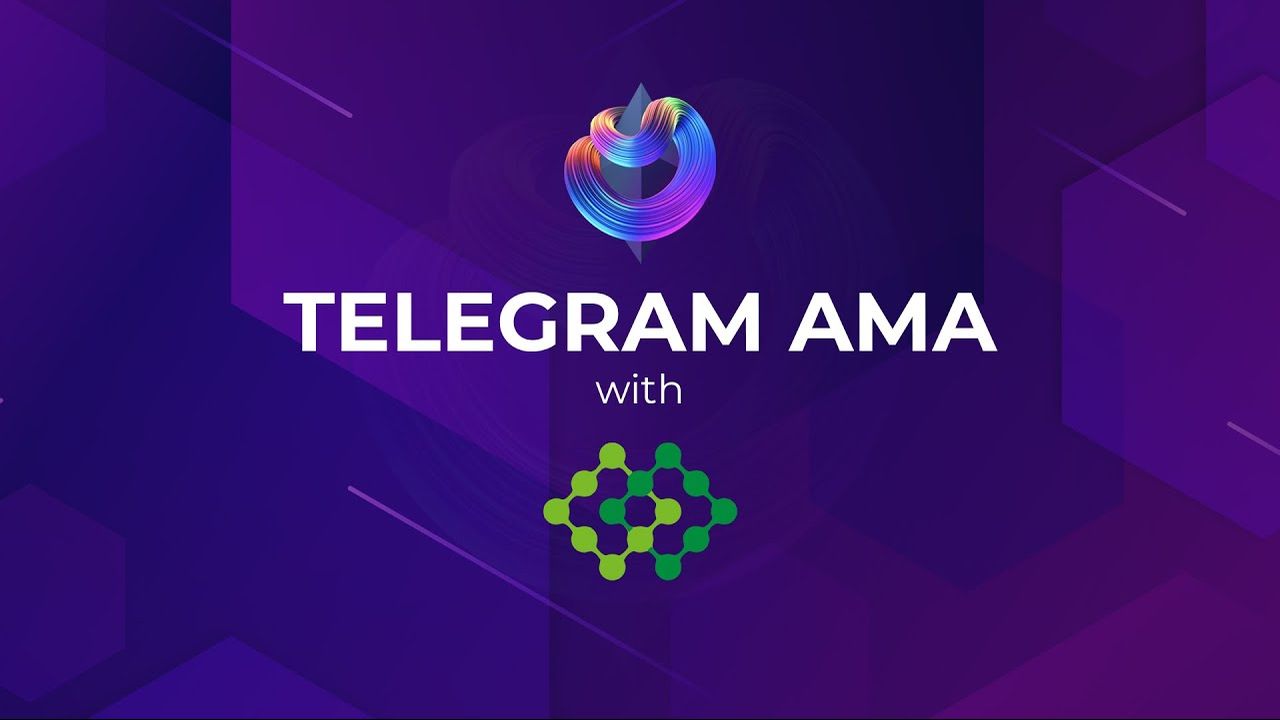
Sommelier Liquidity AMA with Dan Thomson from InsurAce

Sommelier This Week - April 29th 2021: Weeks Away From a Taste of the Sommelier App Experience and How the Dev Team Stays on Track
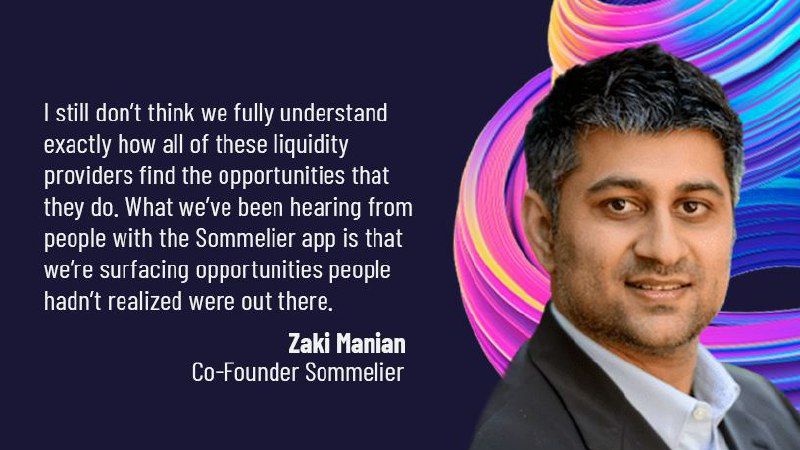
Zaki Manian Breaks Down a Phase Change Liquidity Providers Need to Know About Automated Market Makers
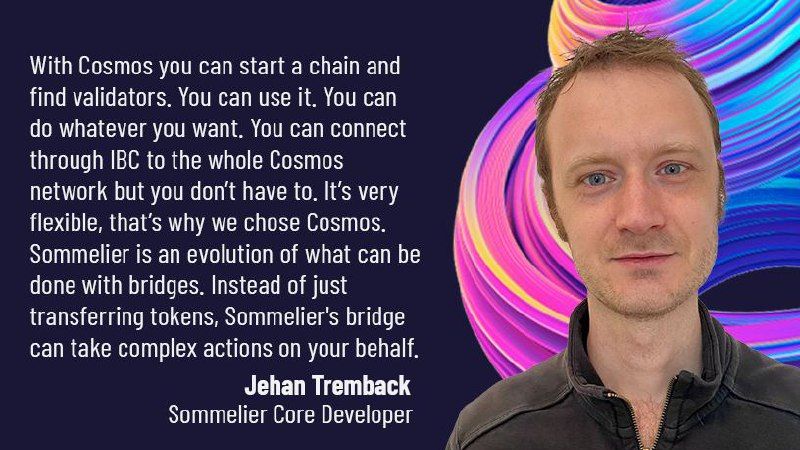
Introducing Jehan Tremback: Sommelier Core Developer and Althea Co-Founder that pushes the Limits of the Blockchain Bridge with Gravity

Sommelier This Week - April 22nd 2021: An Inside Look at Progress on Coordinating Sommelier Components That Contribute to the Chain

Sommelier This Week - April 15th 2021: Providing a Best-in-Class Experience for Uniswap Liquidity Providers

Sommelier Announces $1M R&D Grant from The Graph Foundation

Introducing LP Rewards: This Week With Cellframe
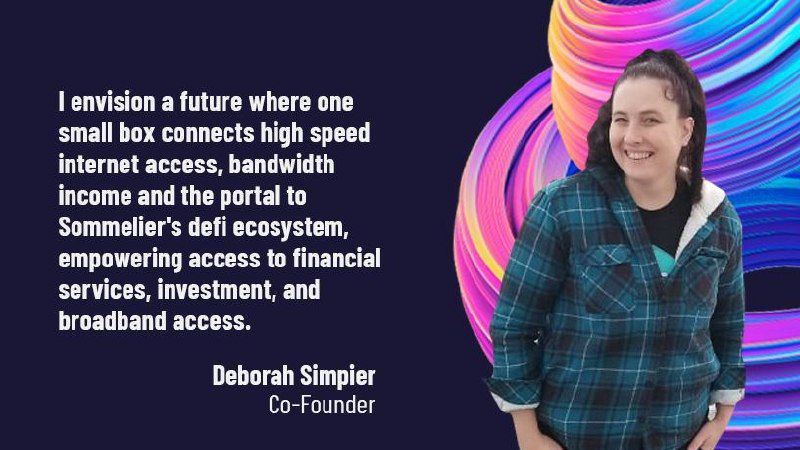
Introducing Deborah Simpier: Althea CEO and Sommelier Co-Founder Who Brought the Gravity Bridge to Life in The Cosmos

Sommelier This Week - April 8th 2021: What Uniswap v3 Means For Sommelier Architecture and Validators
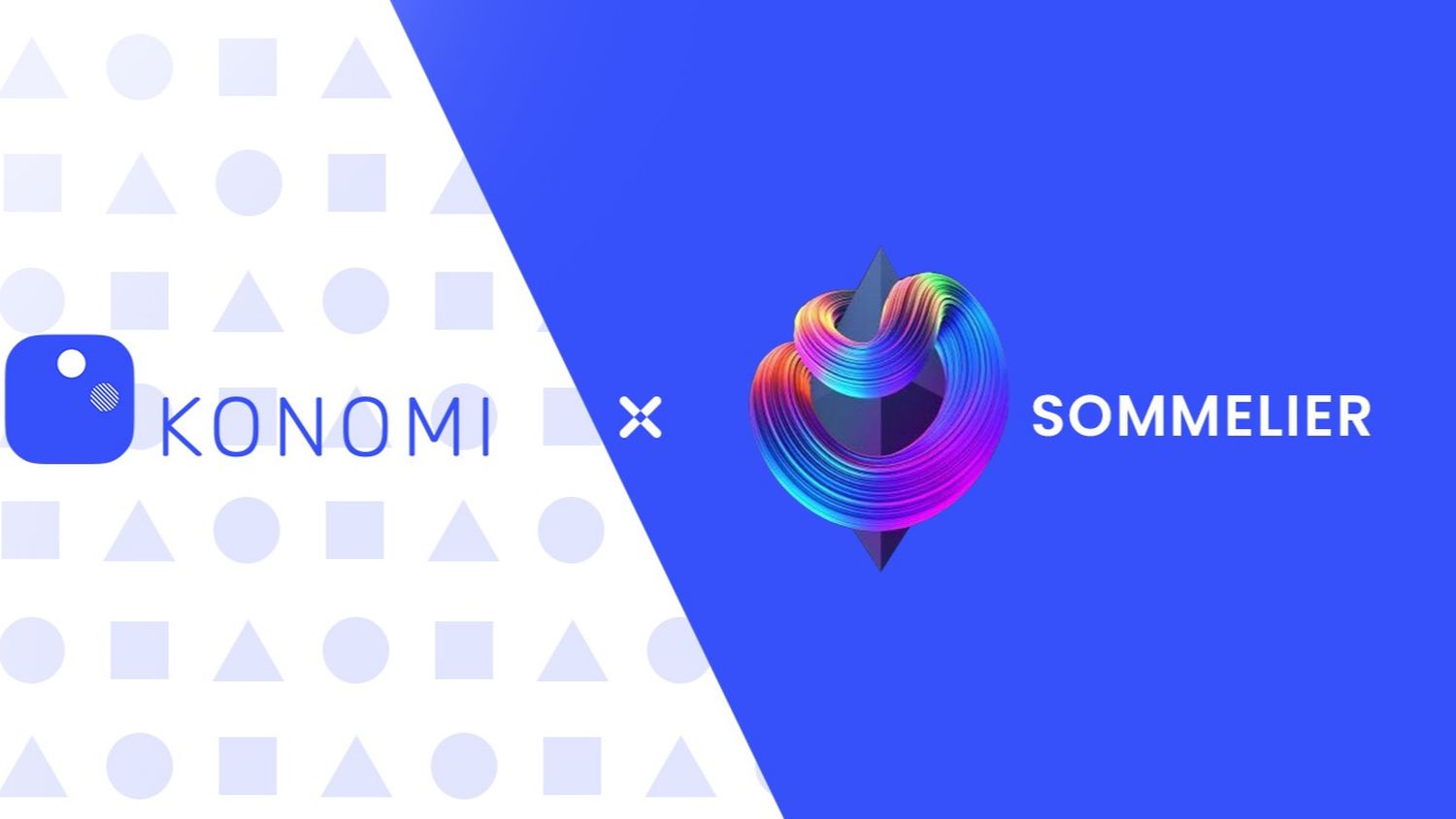
Introducing Sommelier LP Rewards Program

Sommelier This Week - April 1st 2021: Gravity Bridge and Private Testnets

Blockchain startup decides to acquire a California winery and host NFT wine parties
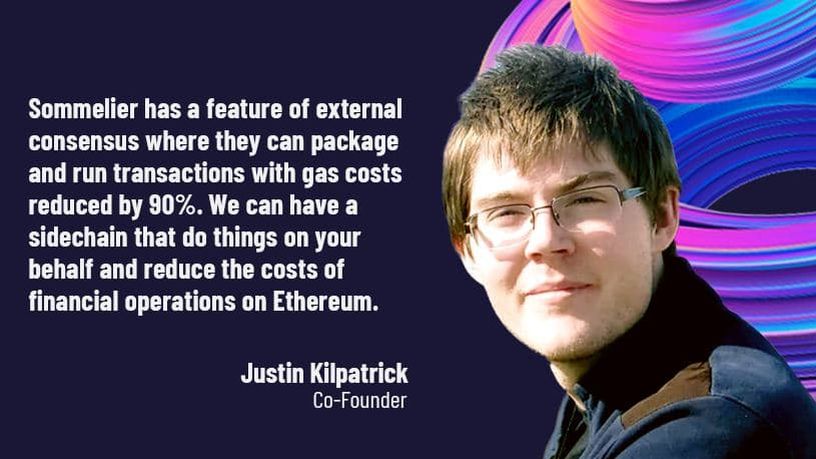
Introducing Justin Kilpatrick: The Blockchain Bridge Wizard Who Maintains Gravity

Five Ways UniswapV3 changes the world for Liquidity Providers on the AMM
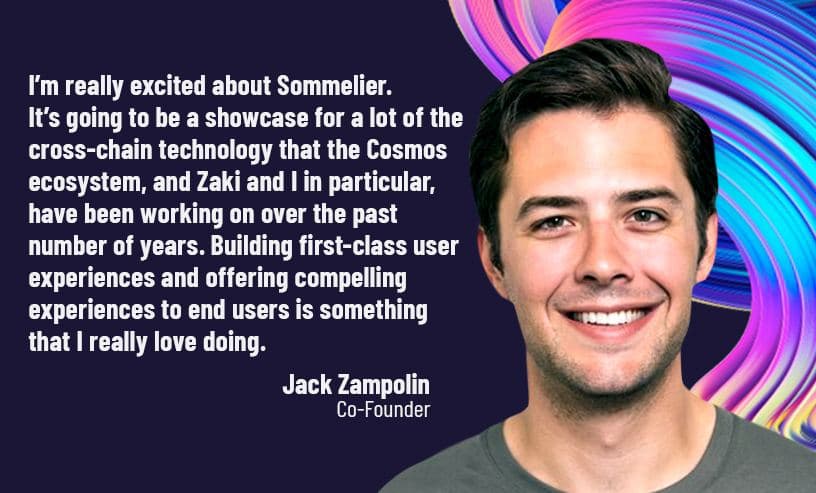
Introducing Jack Zampolin: On Becoming A Sommelier in The Cosmos
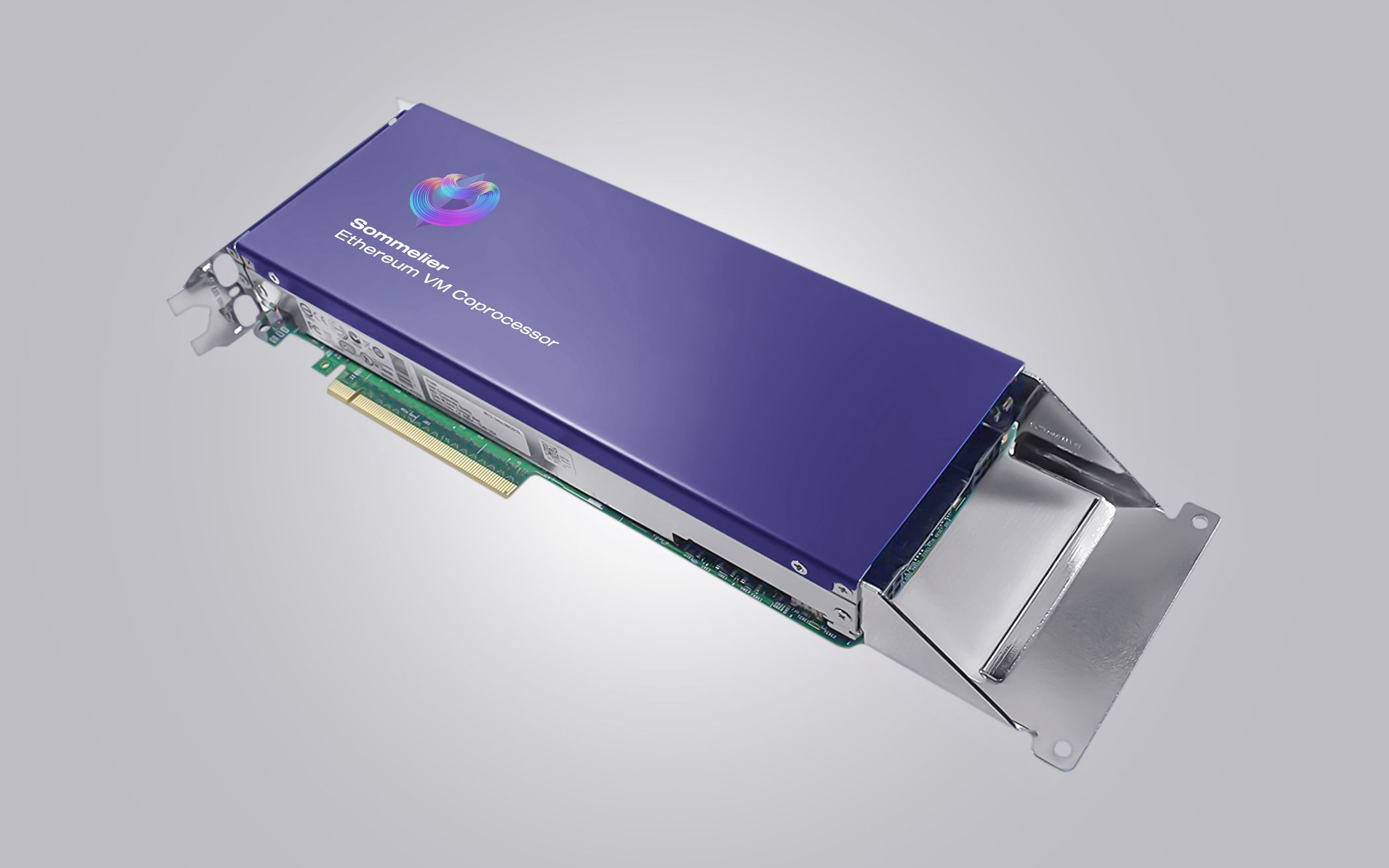
Sommelier: Welcome To The New CoProcessor For Ethereum
© 2025 Somm by Bajanss OÜ –Maakri 36-50, Tallinn, Estonia 10145